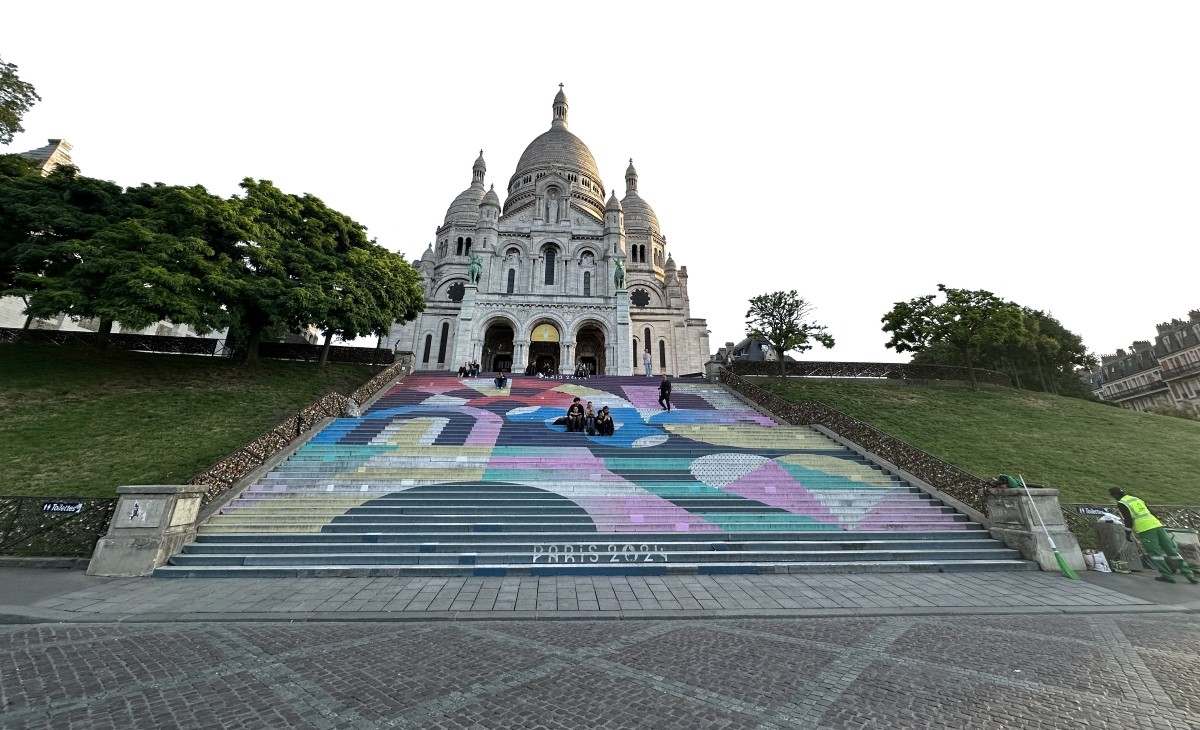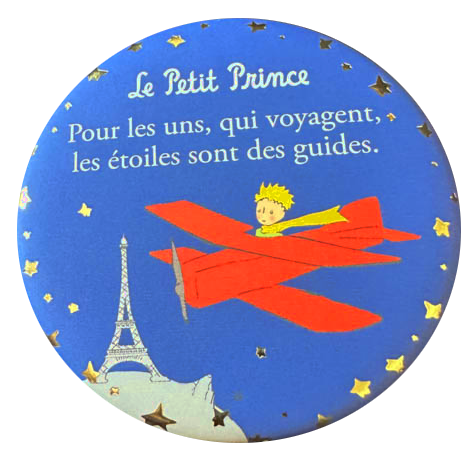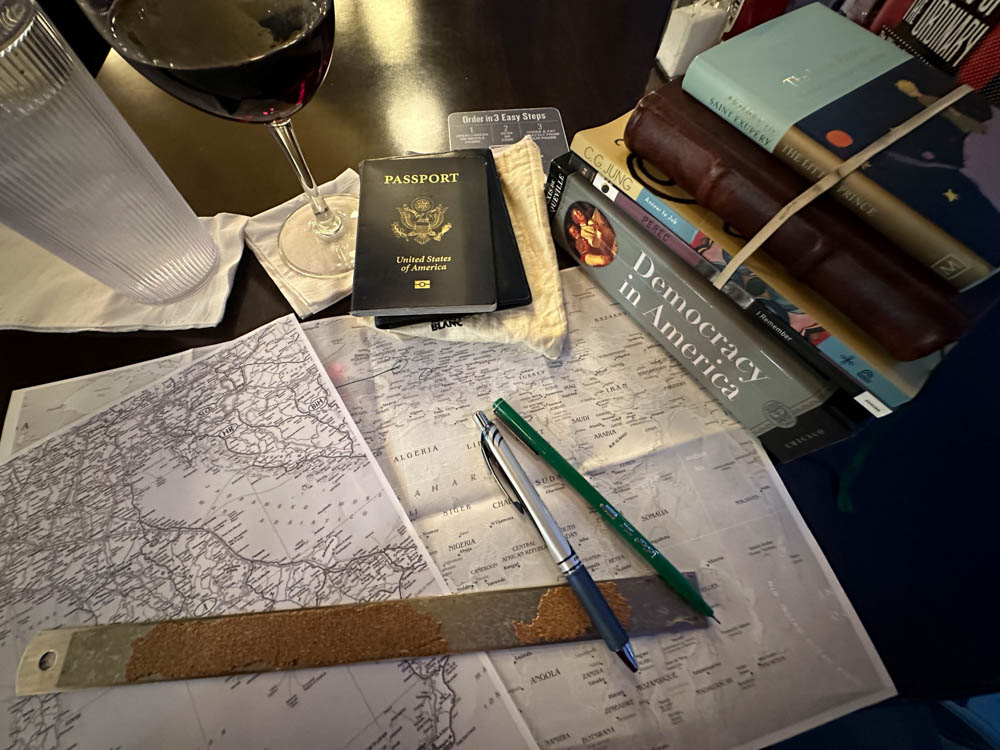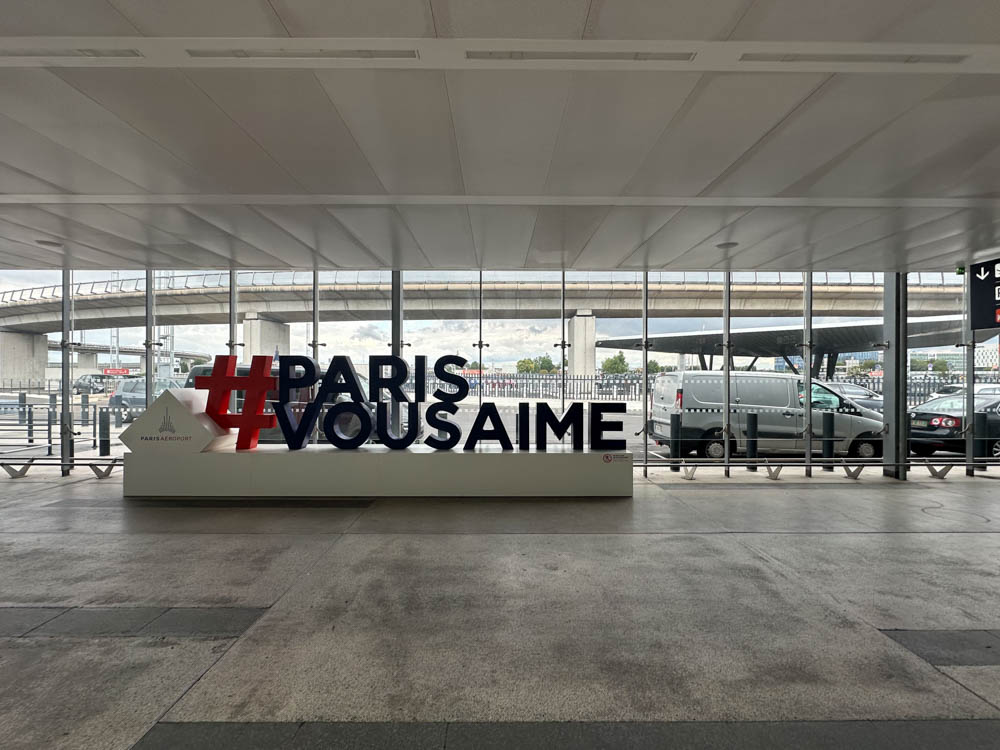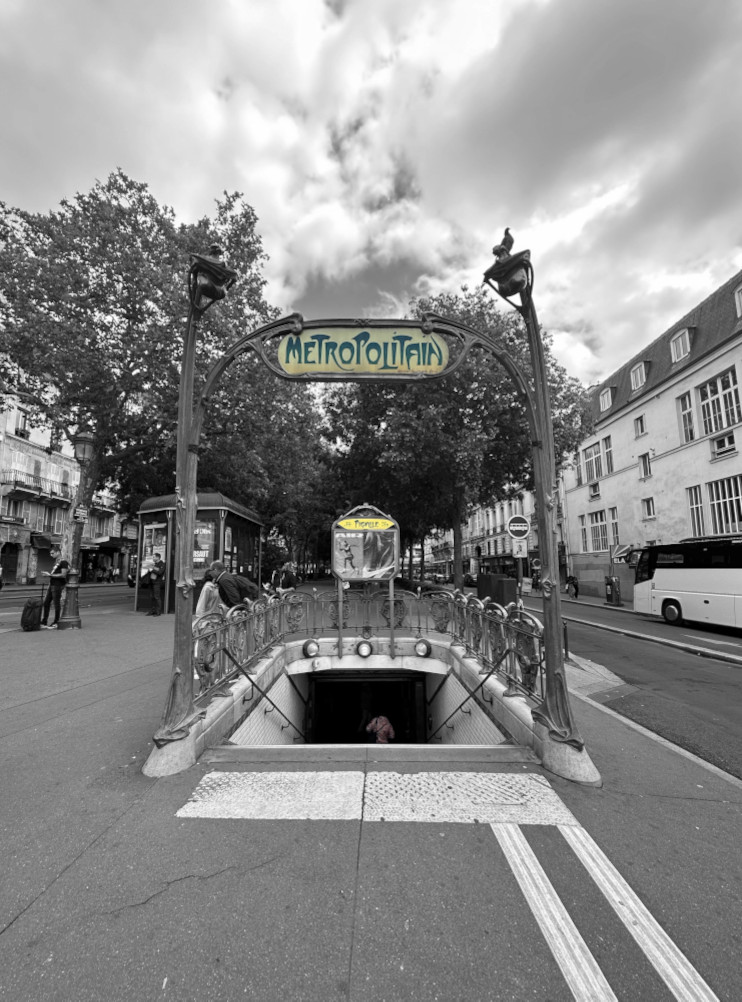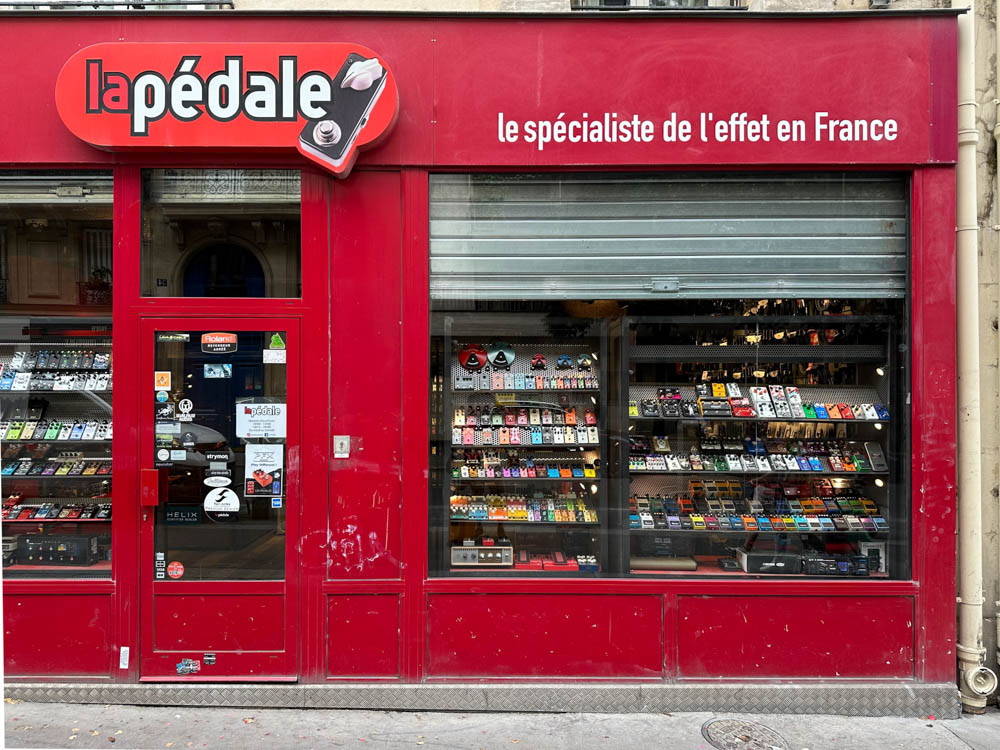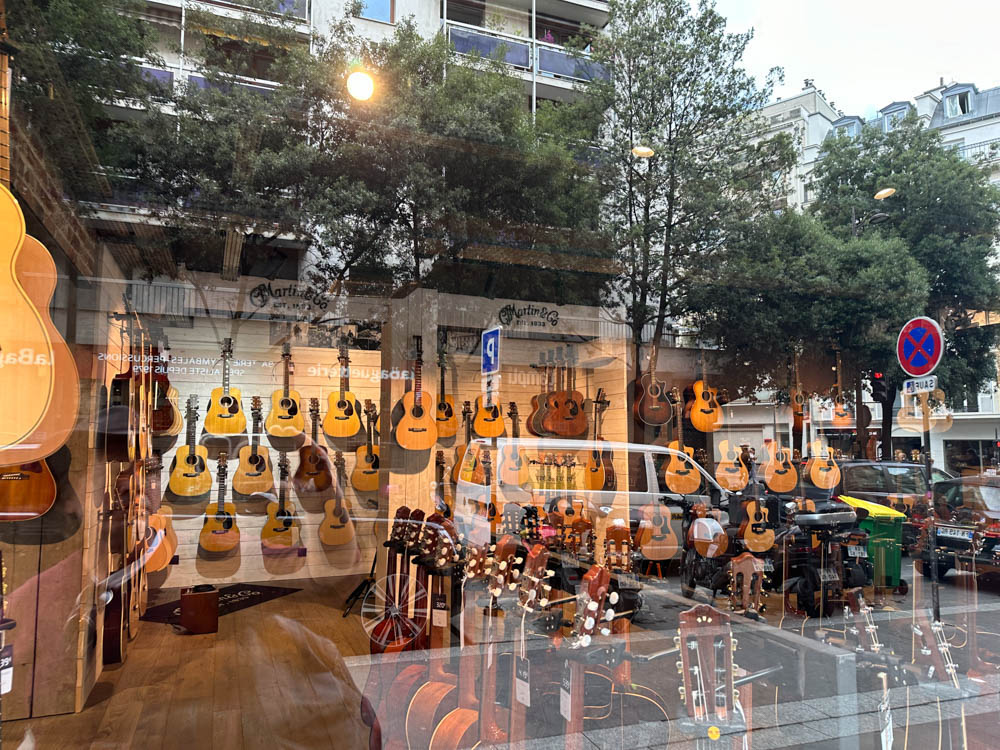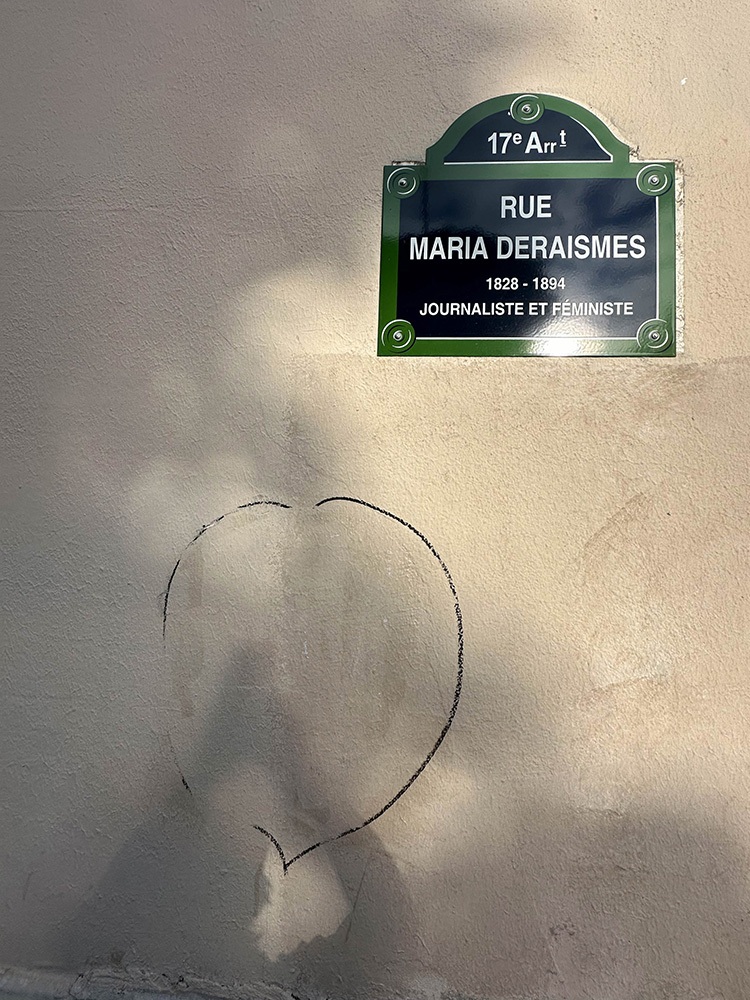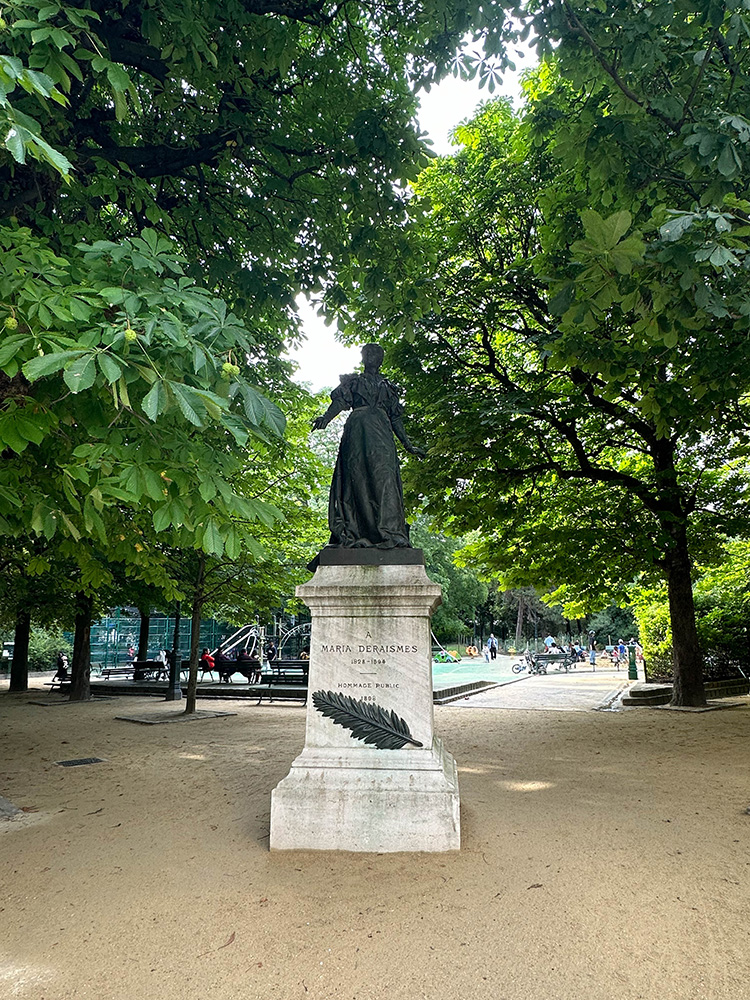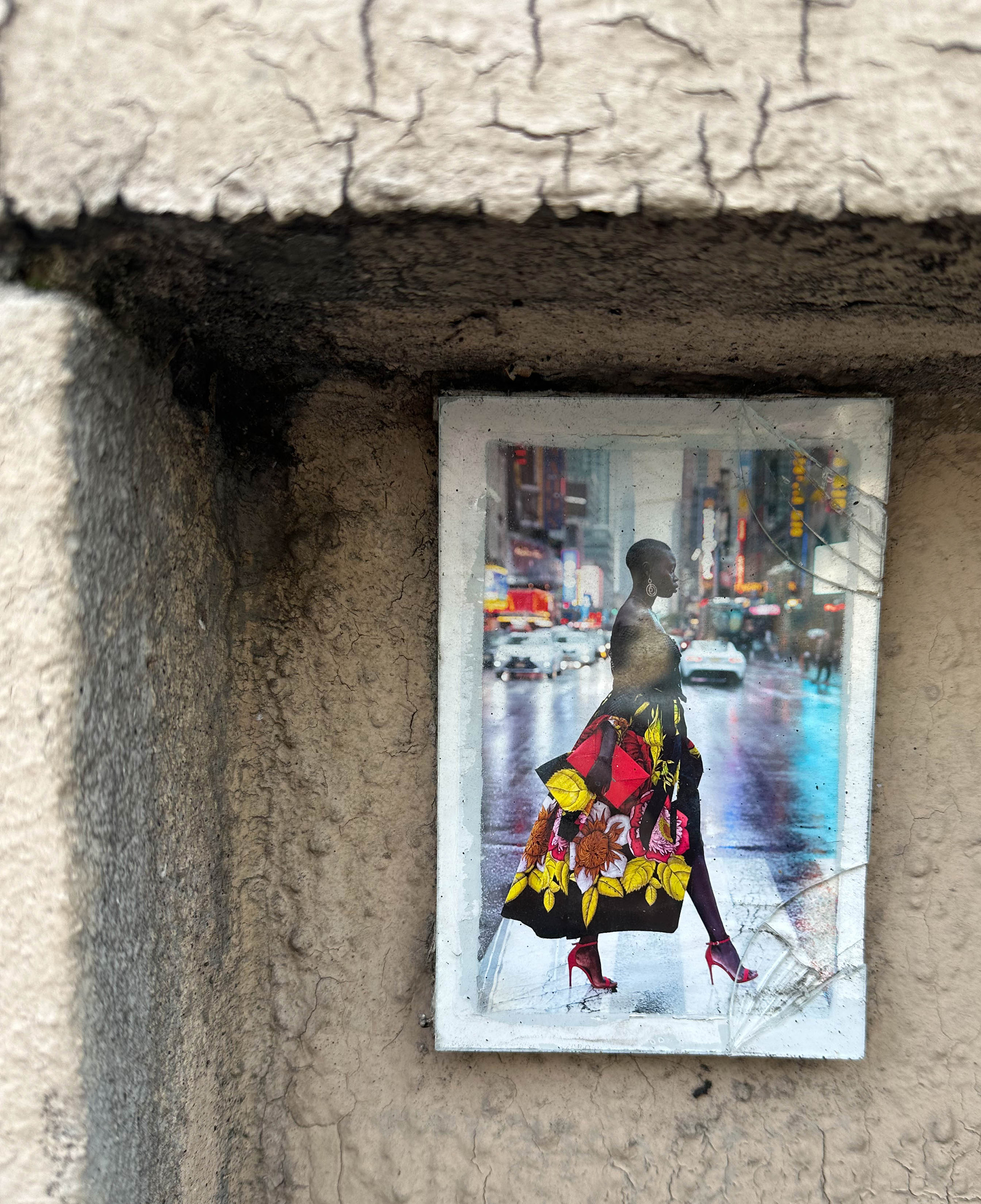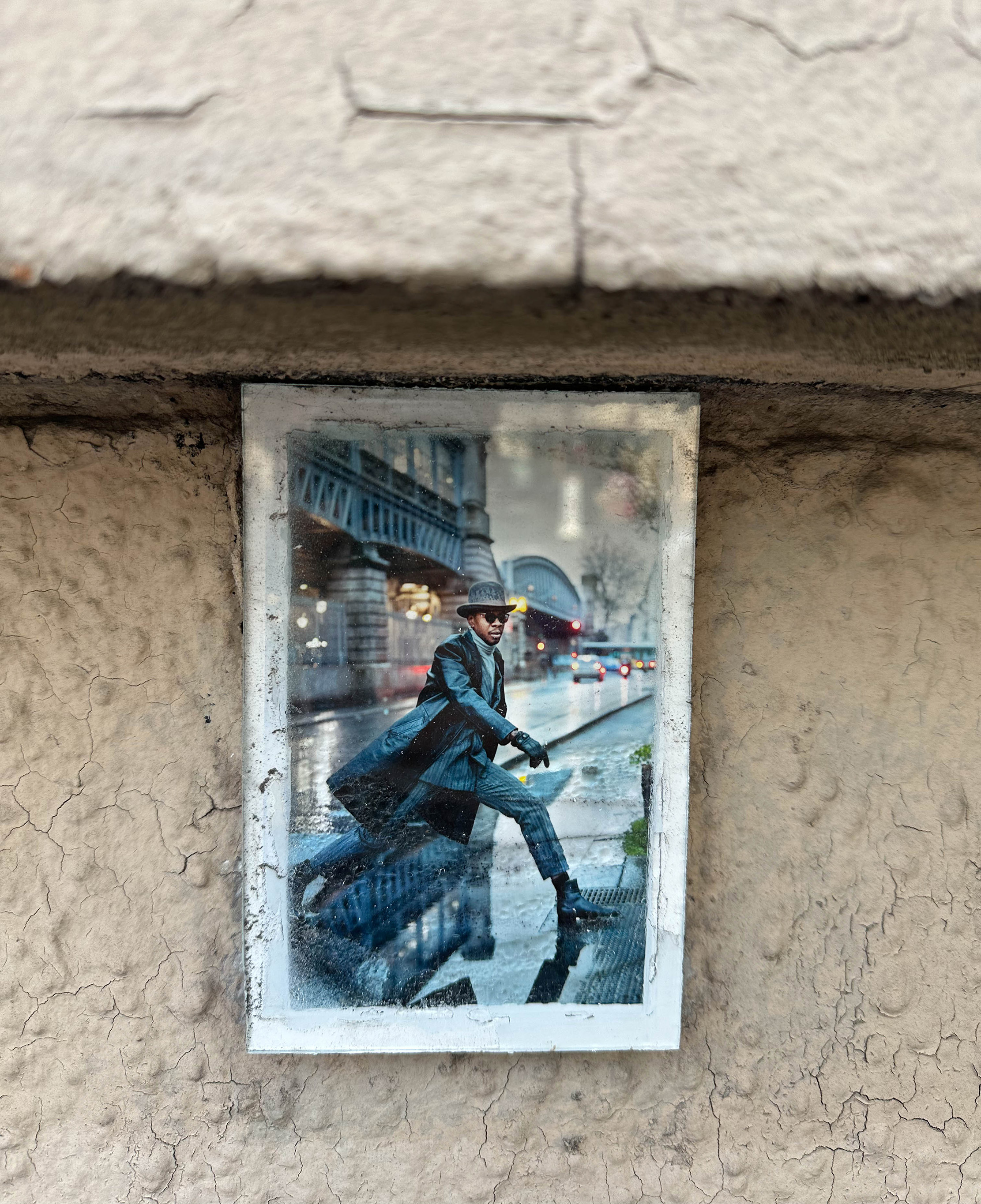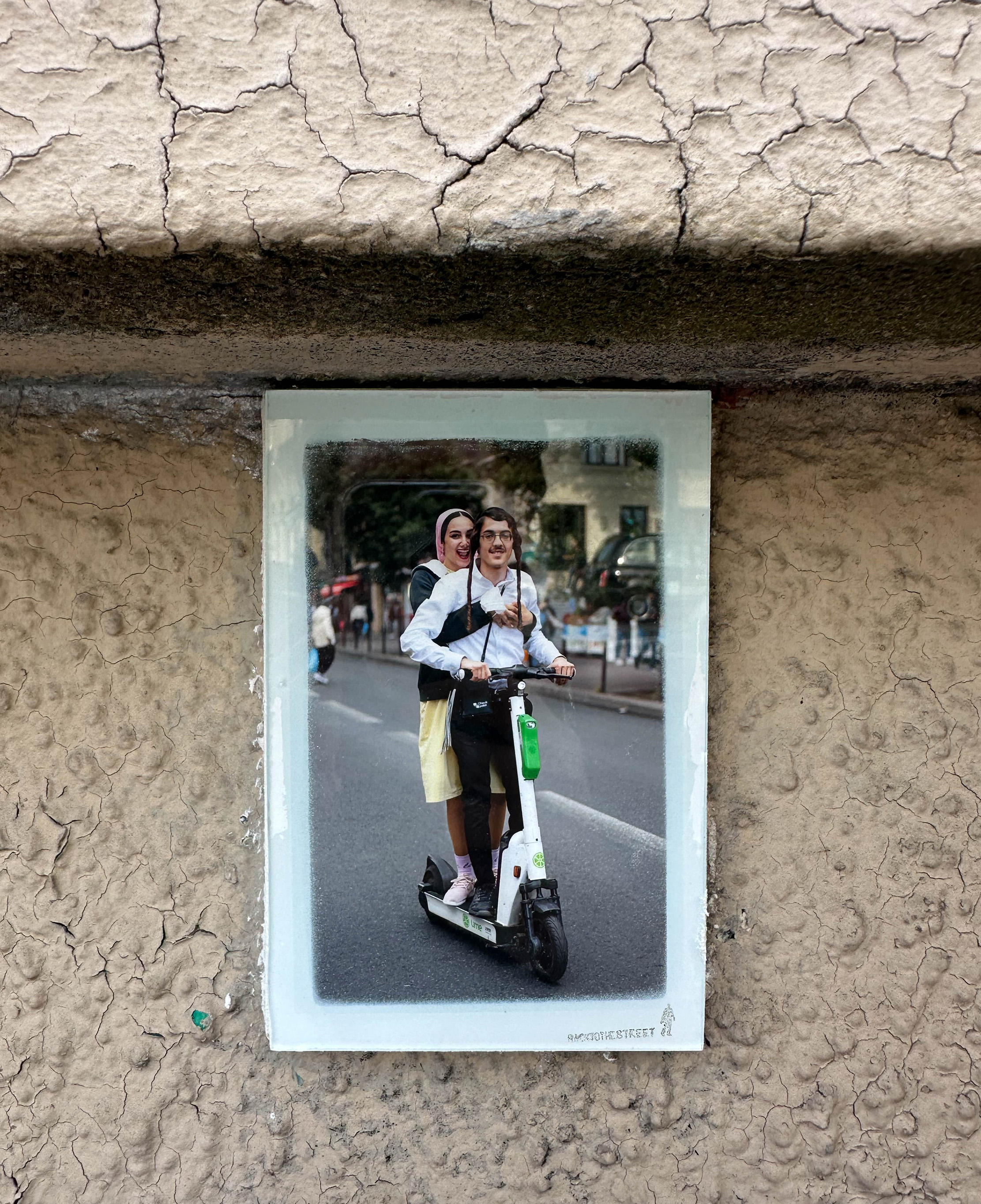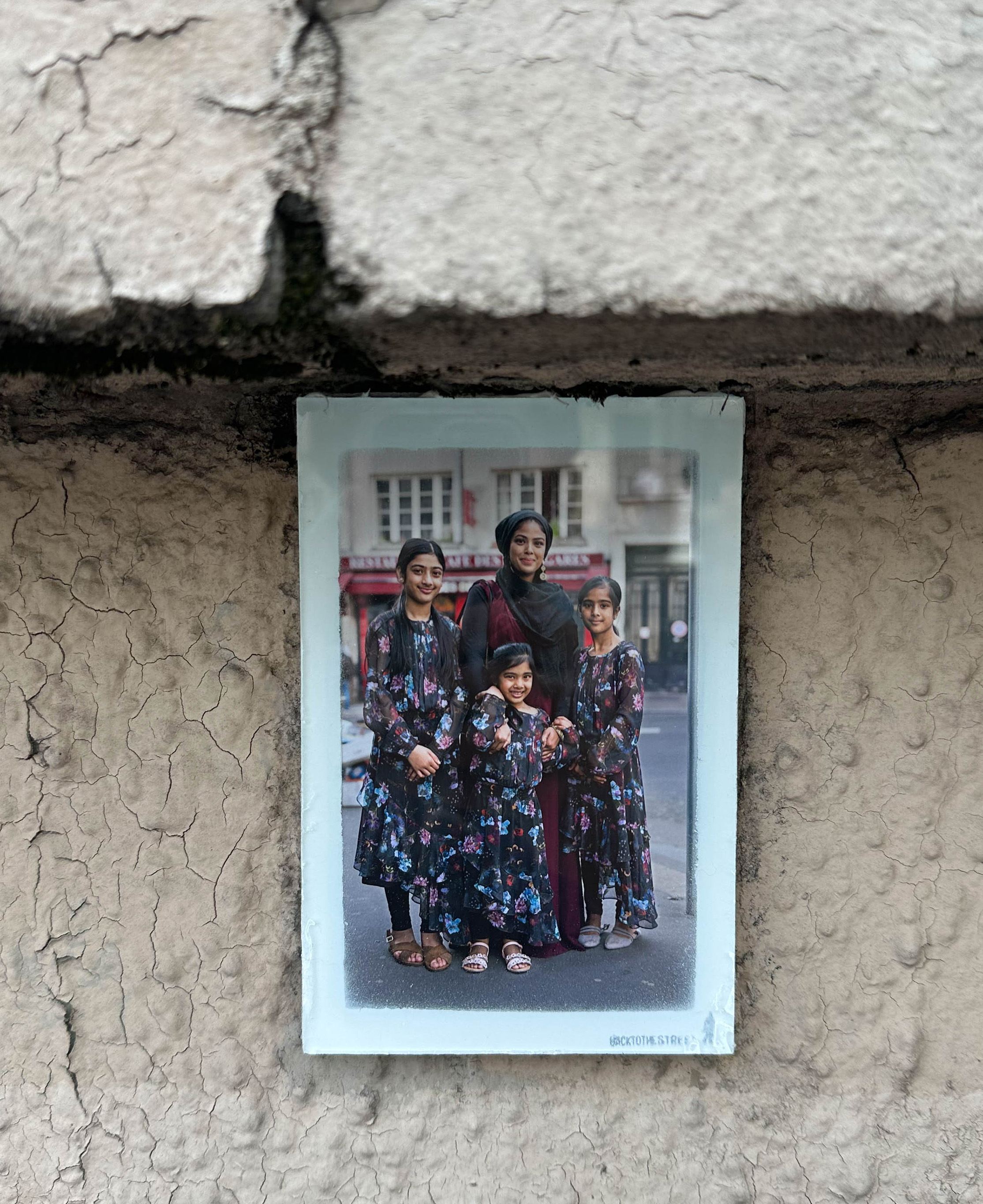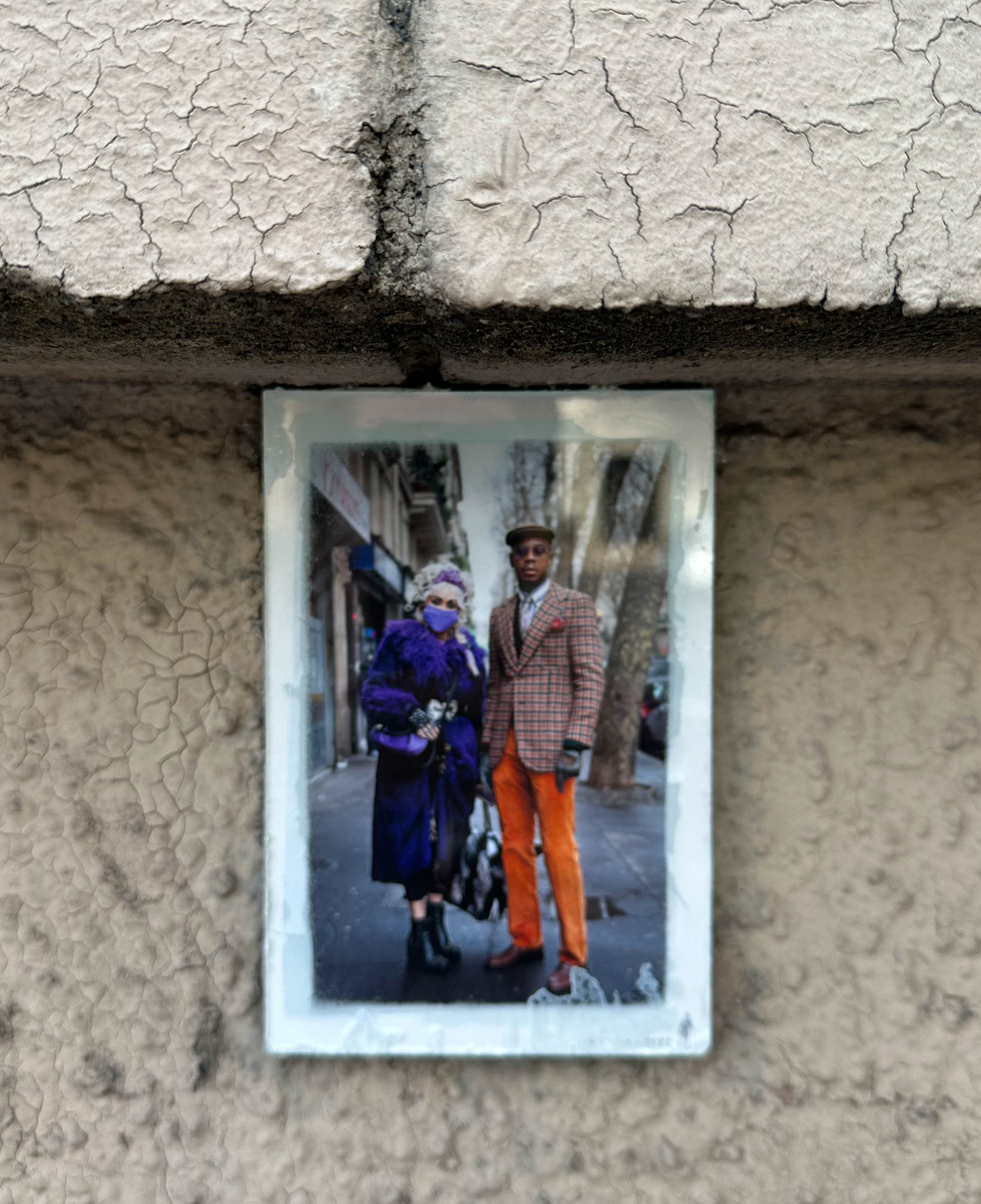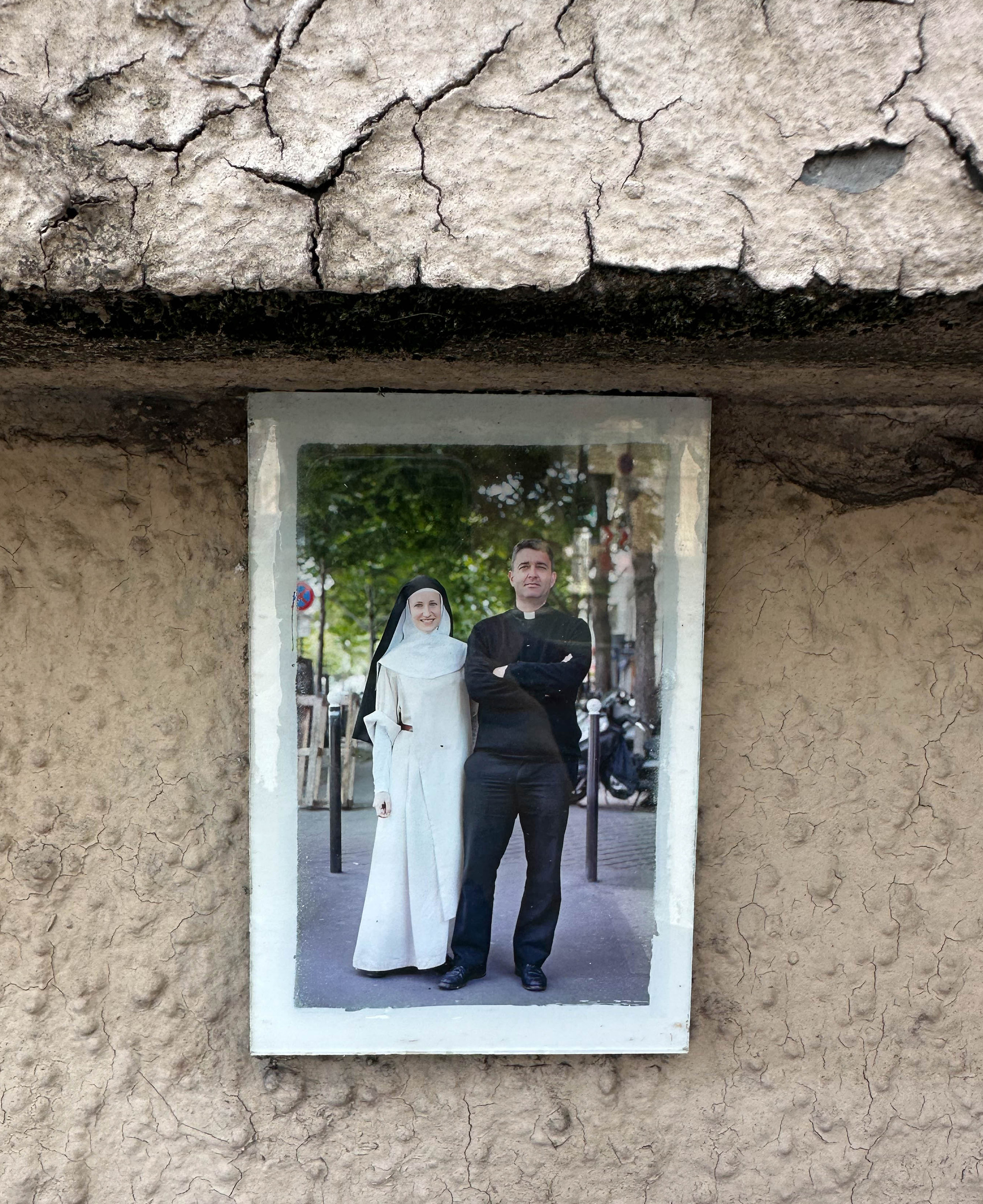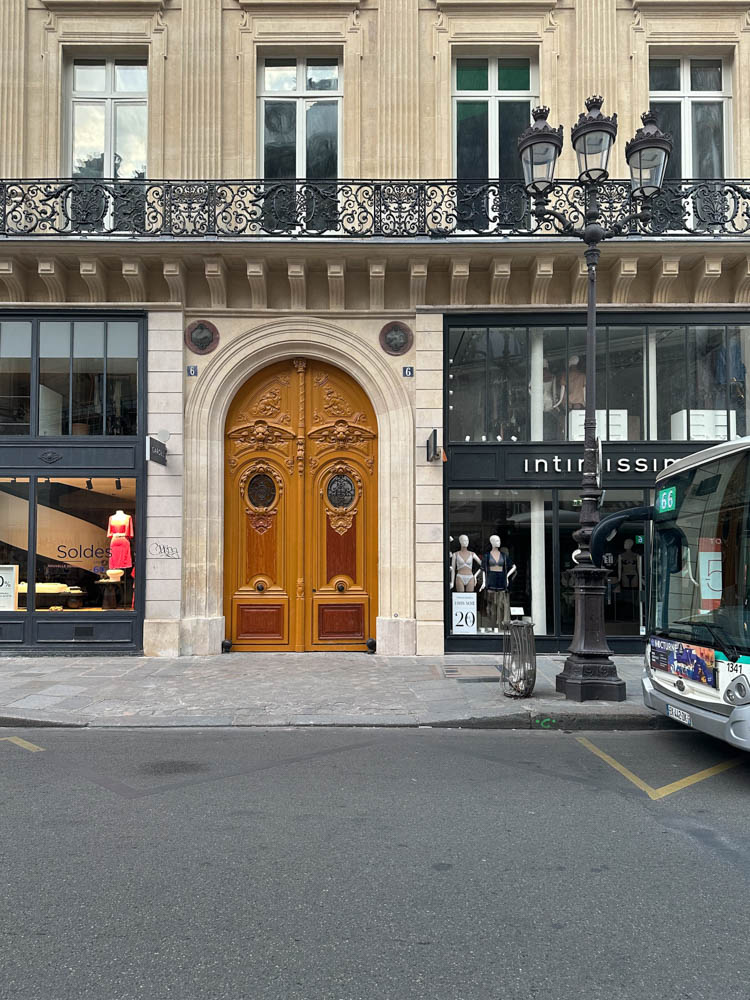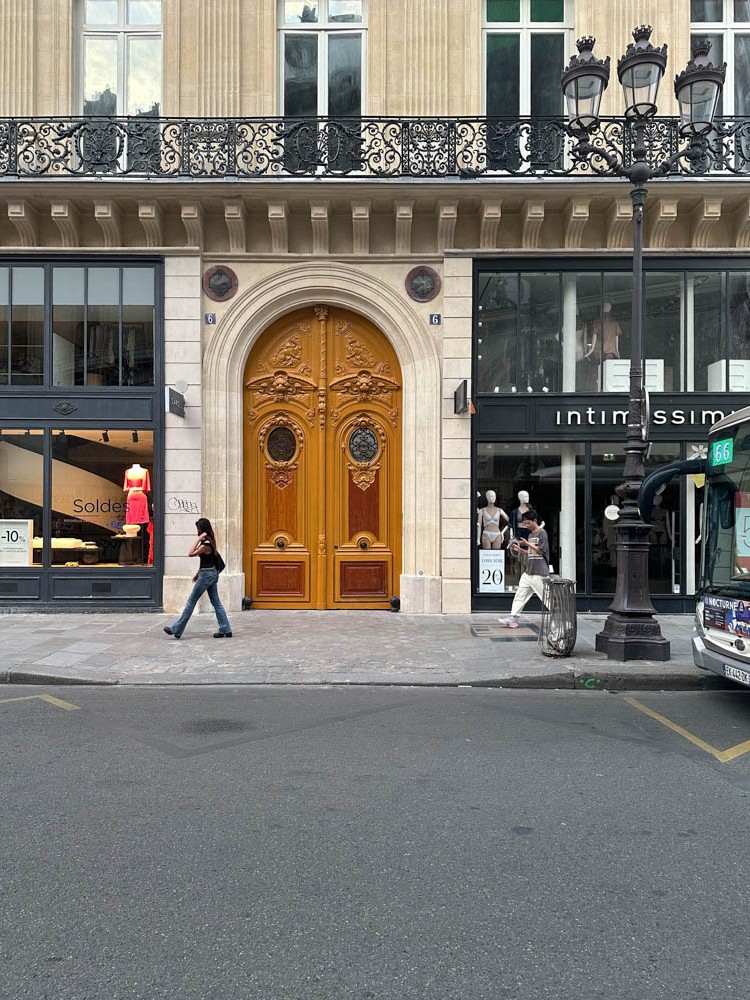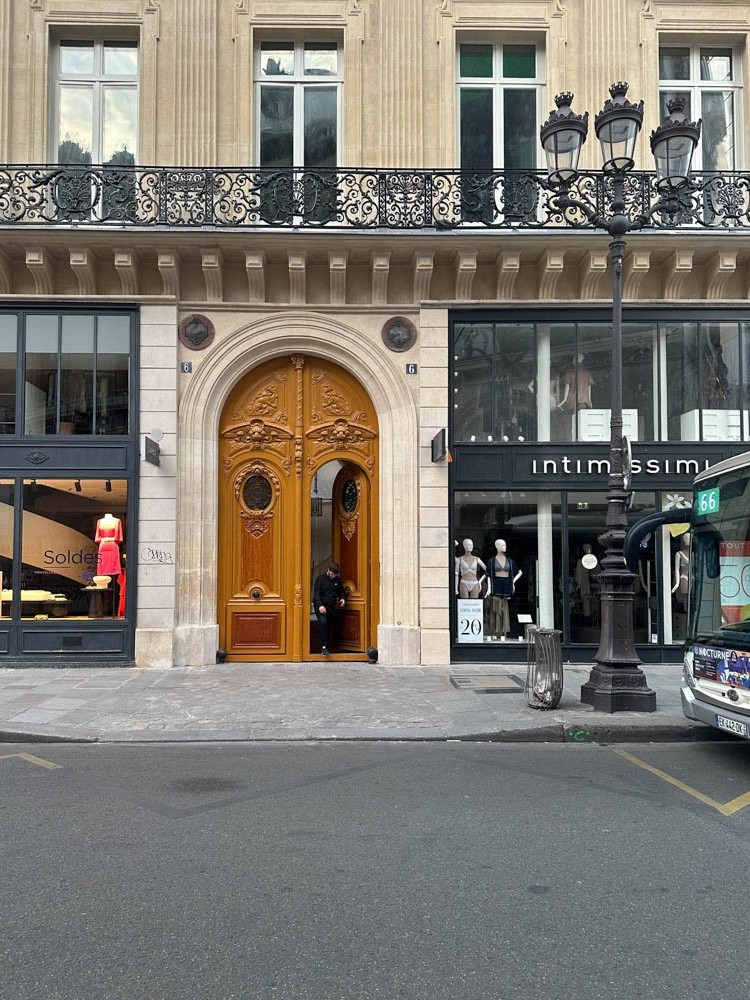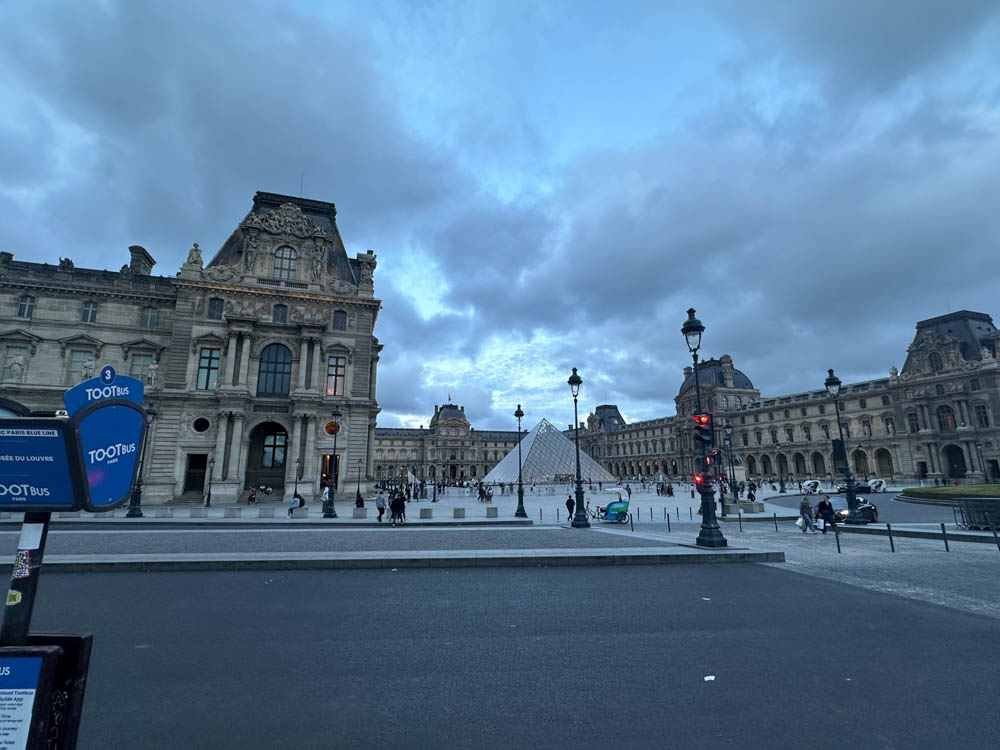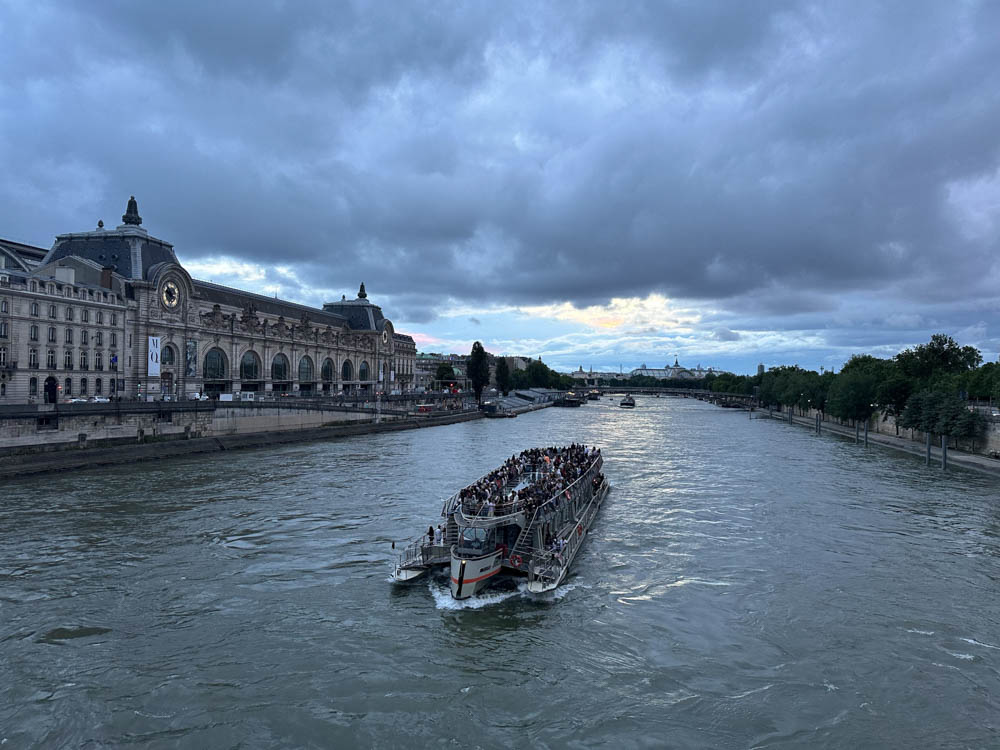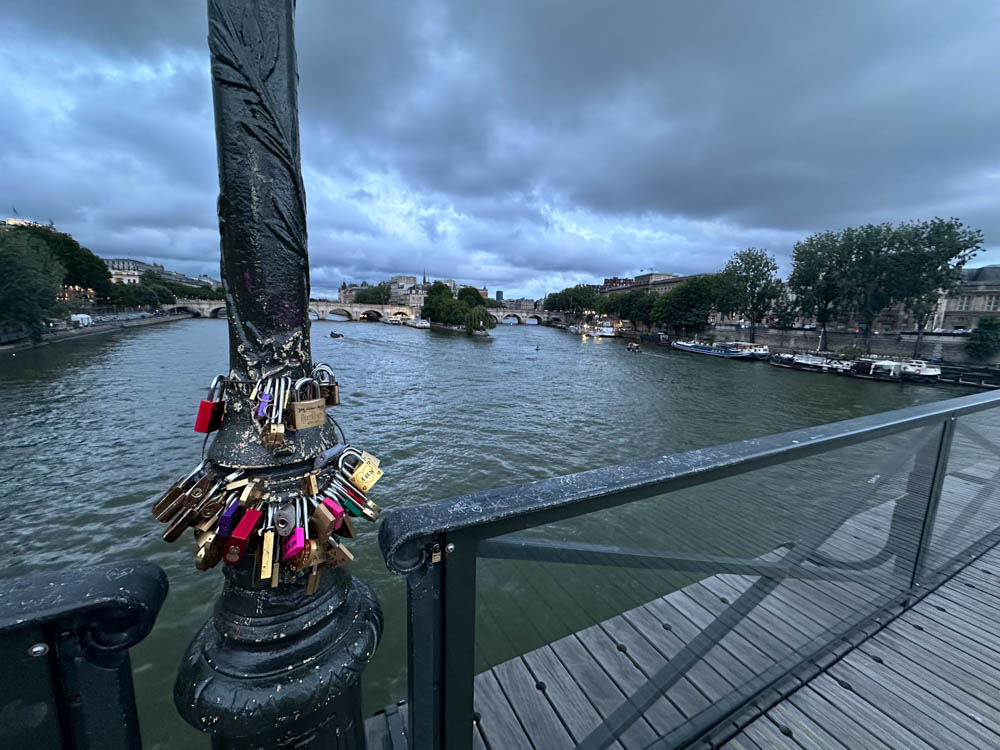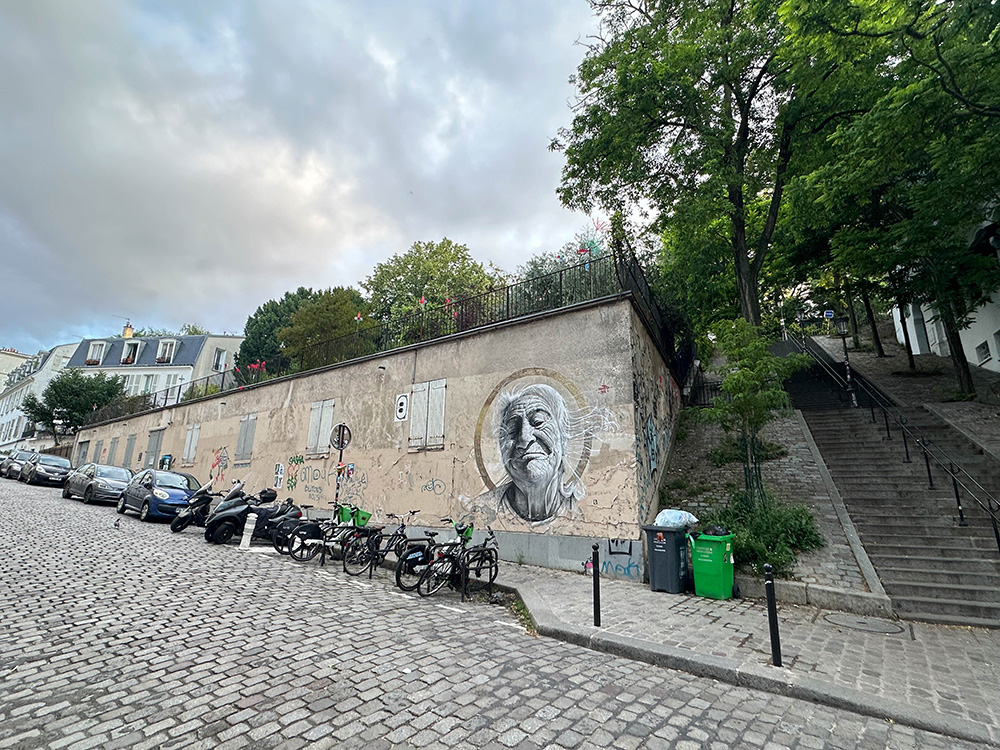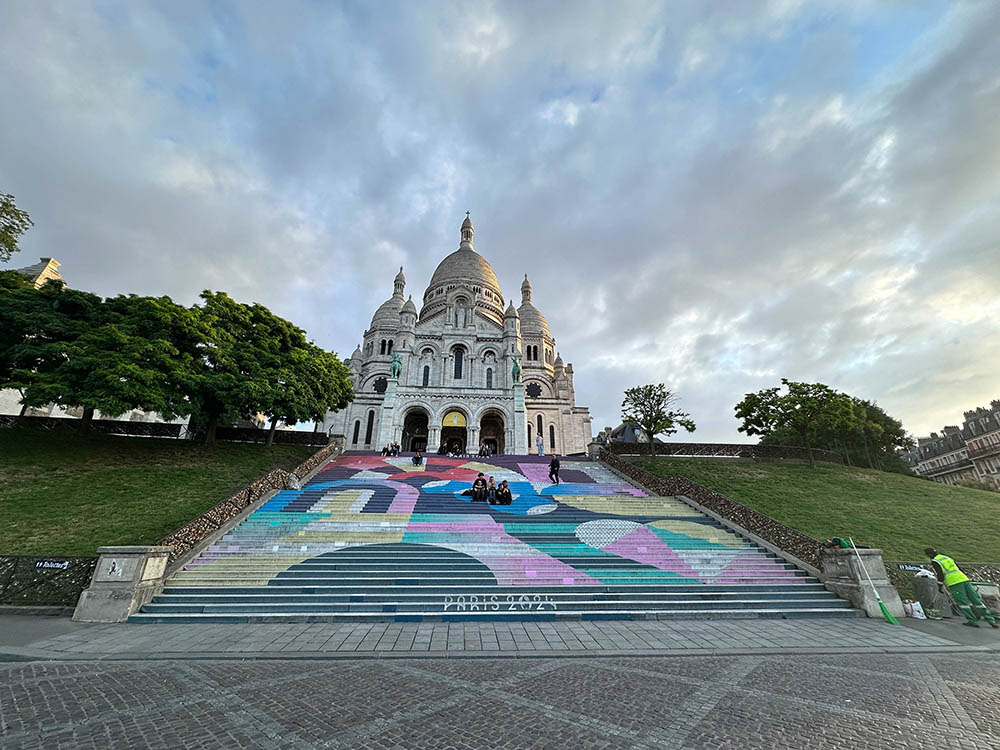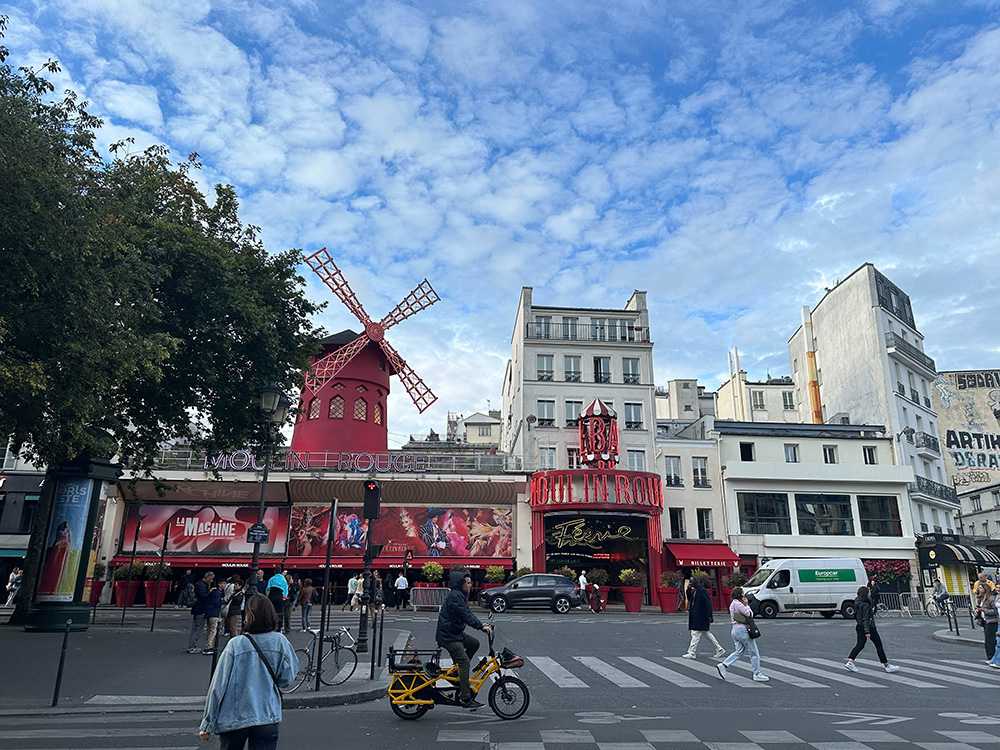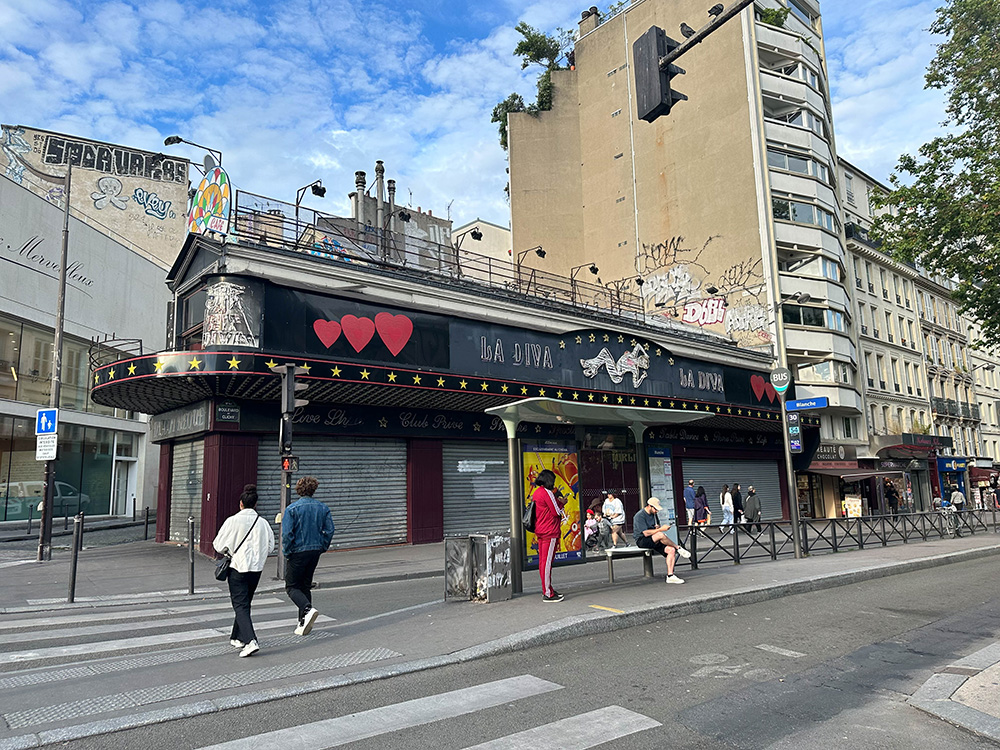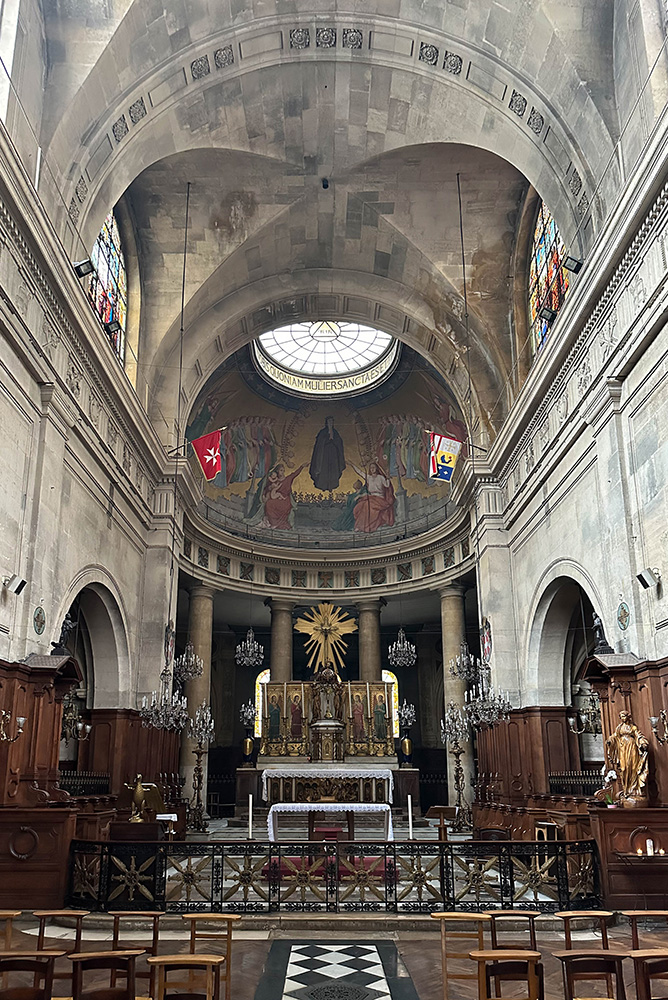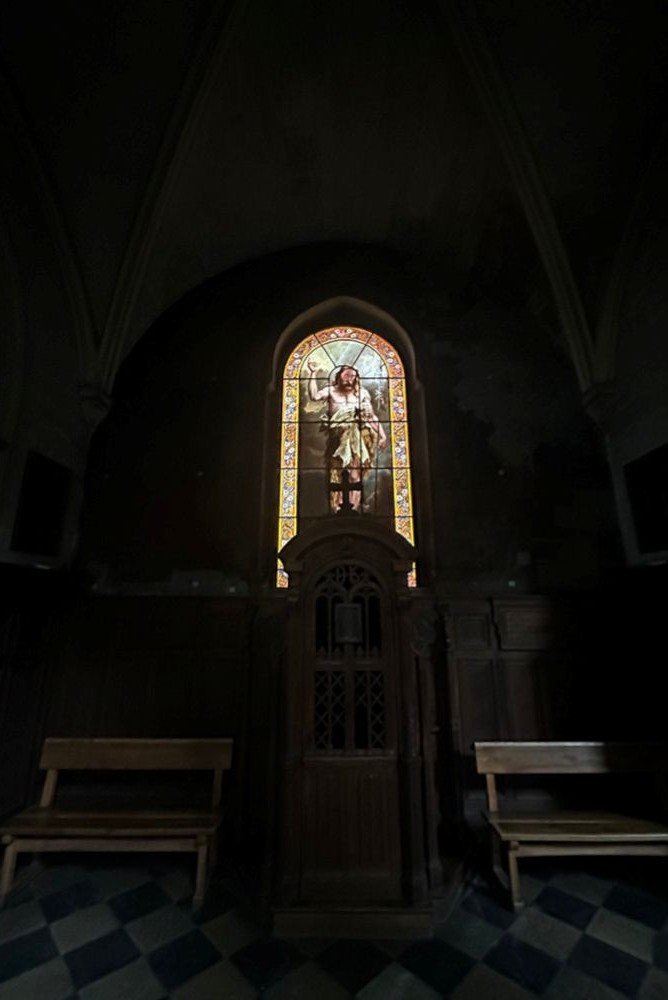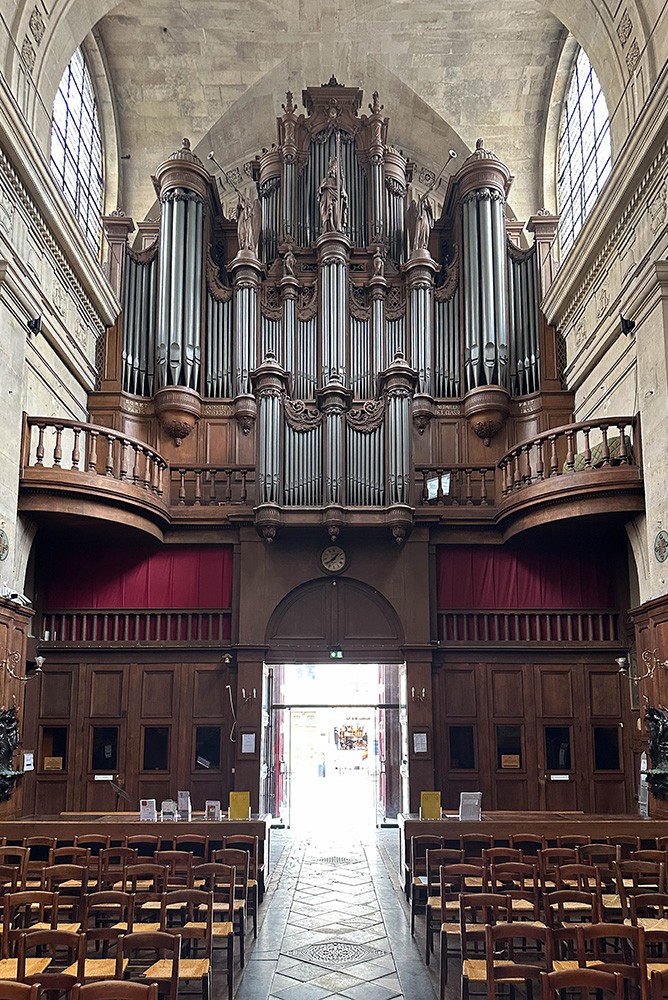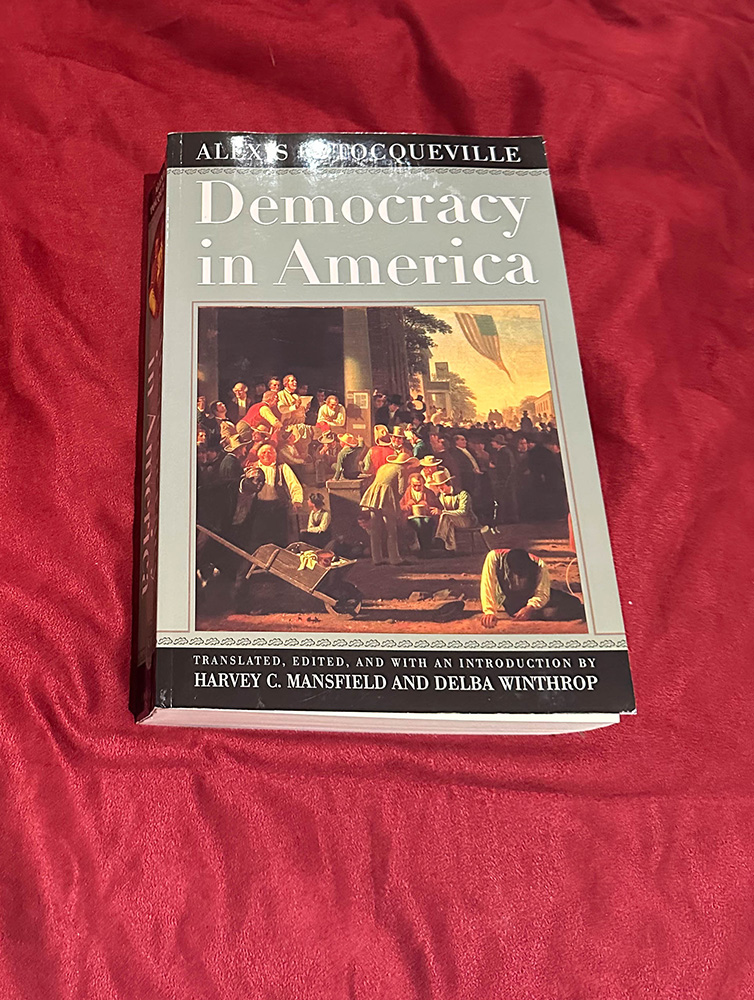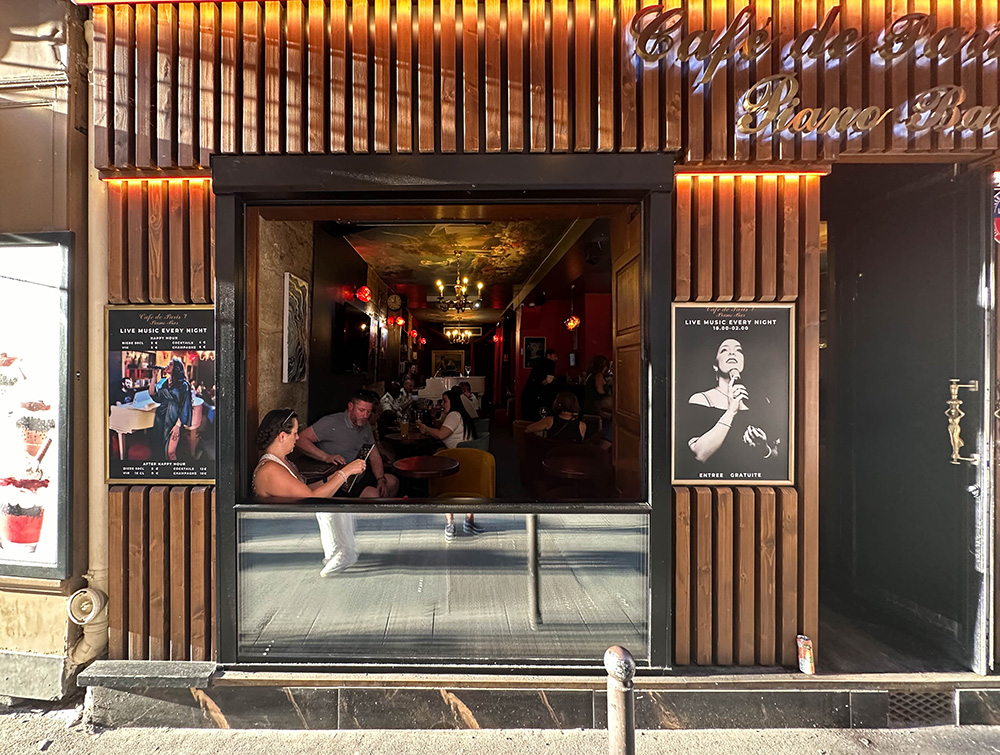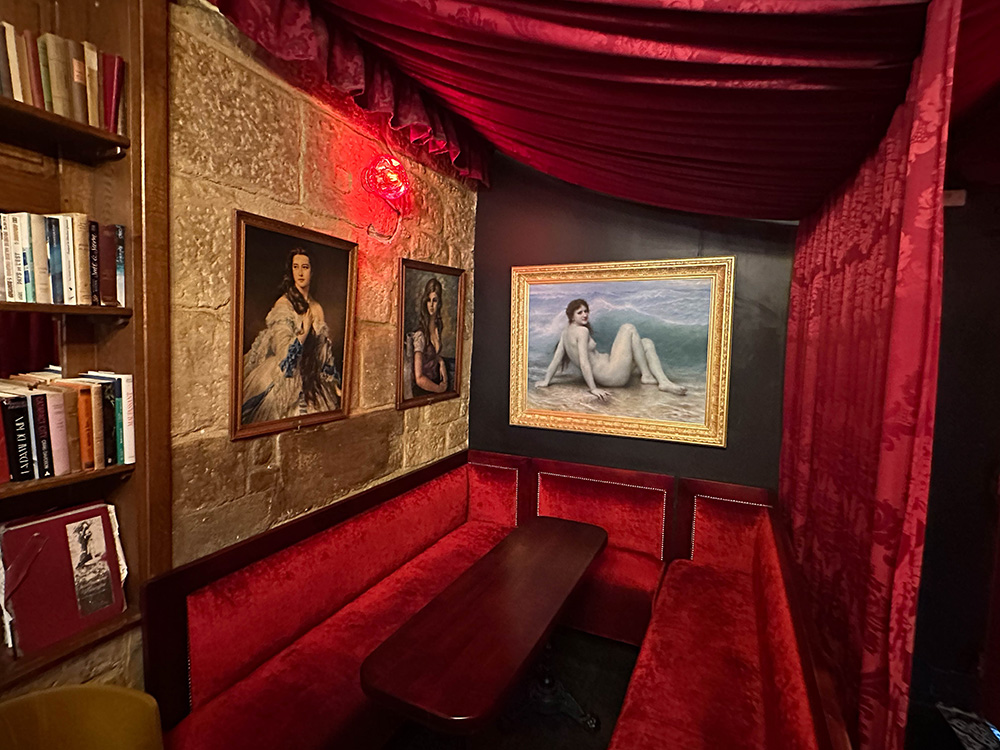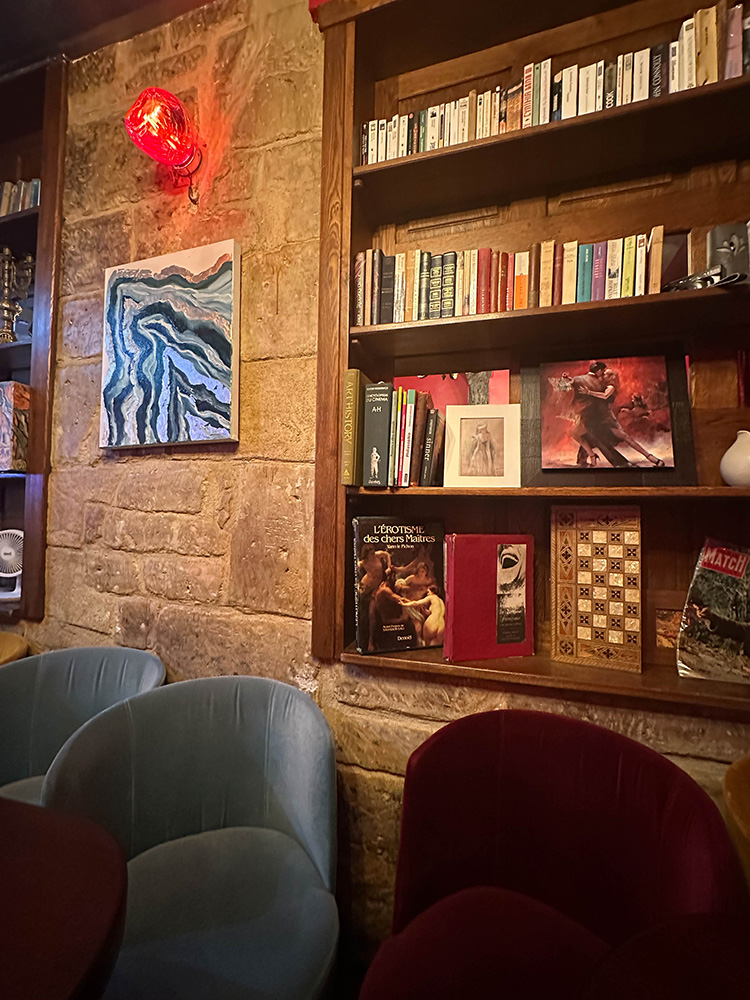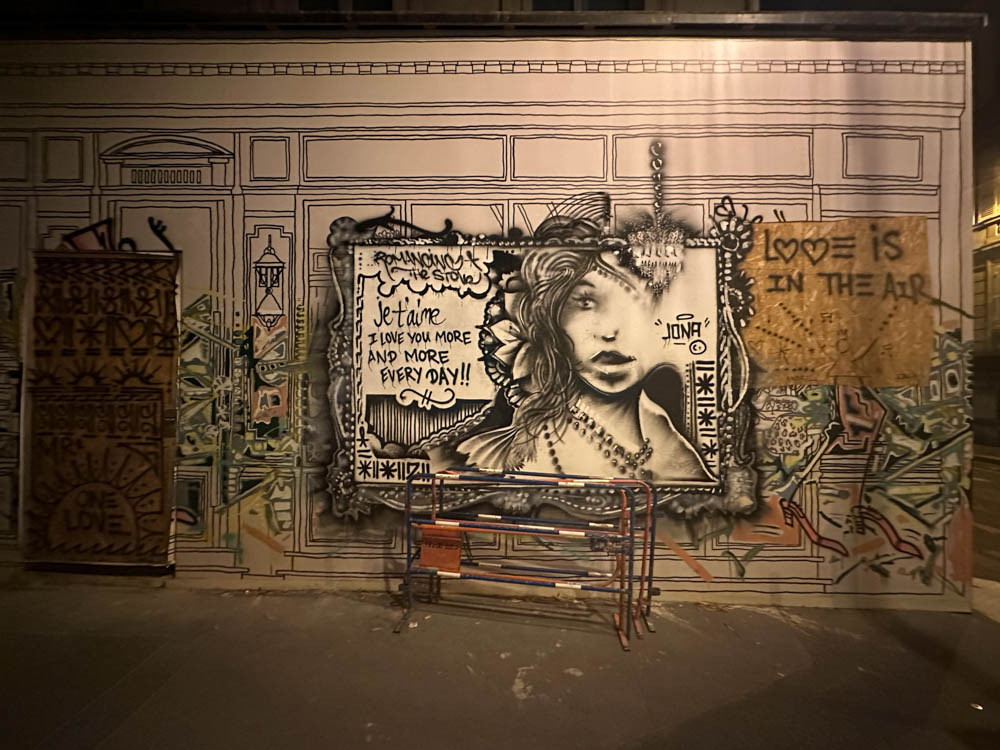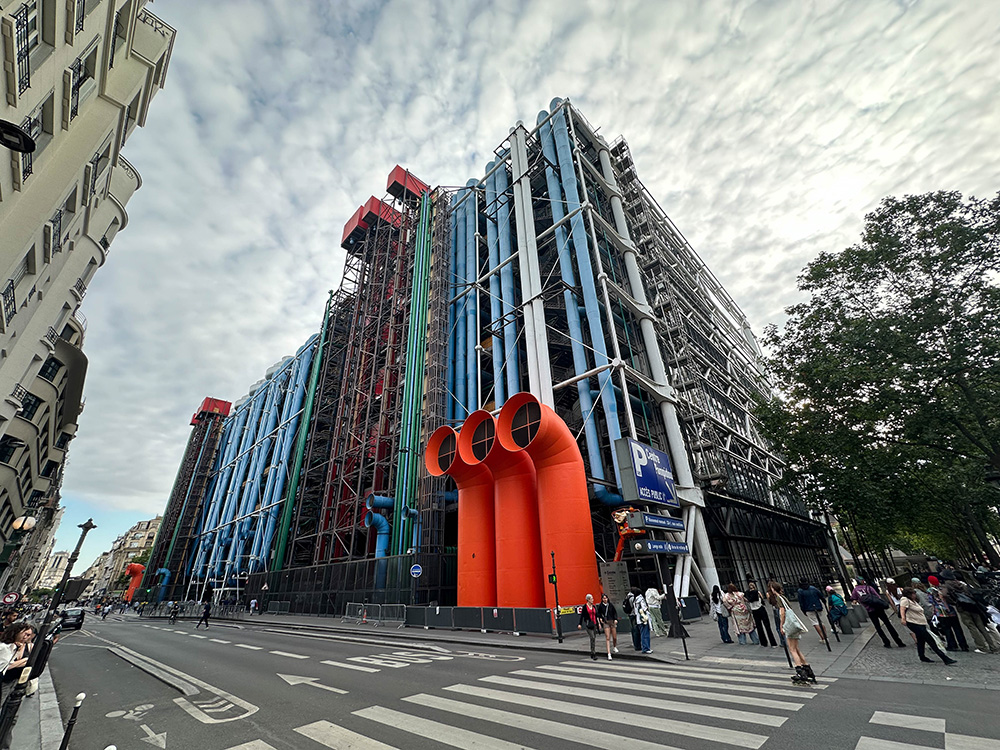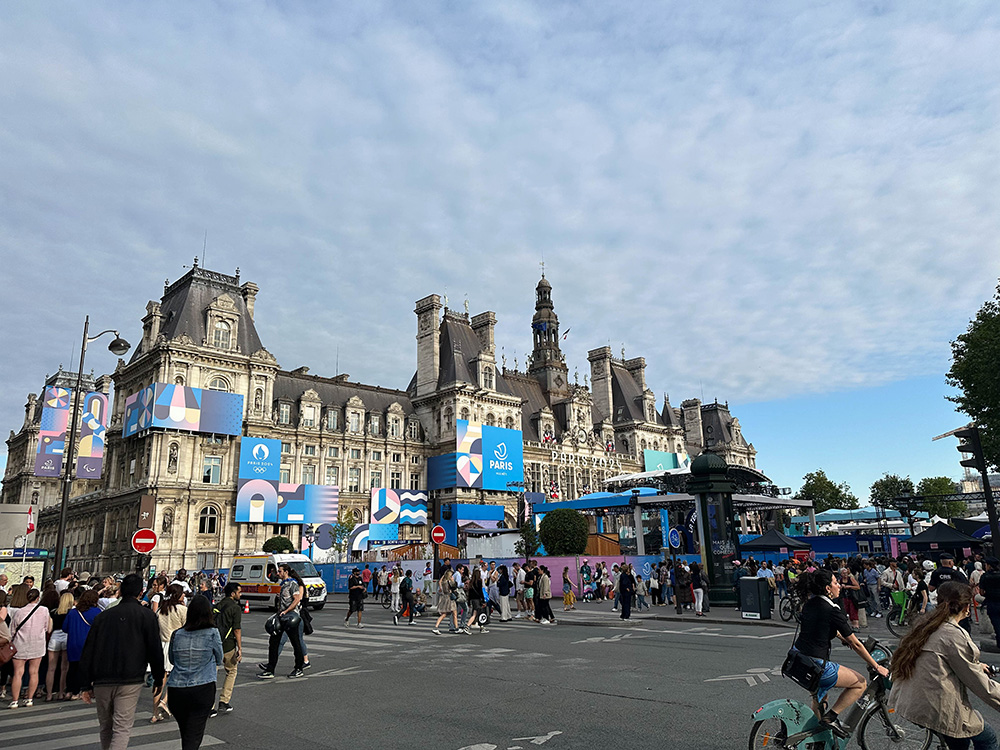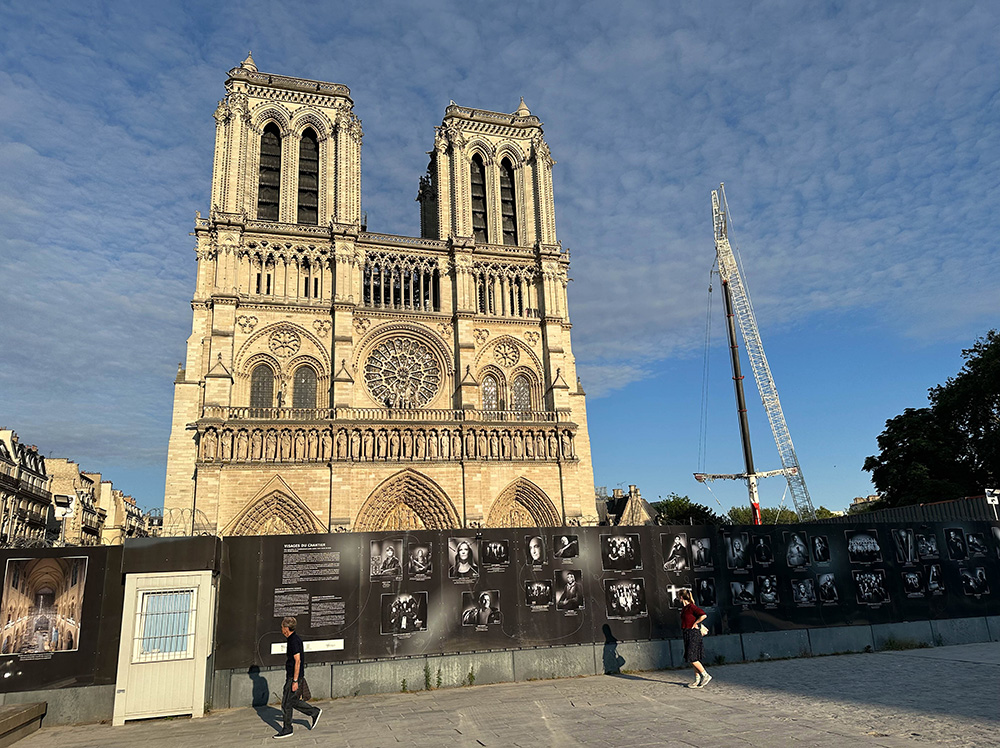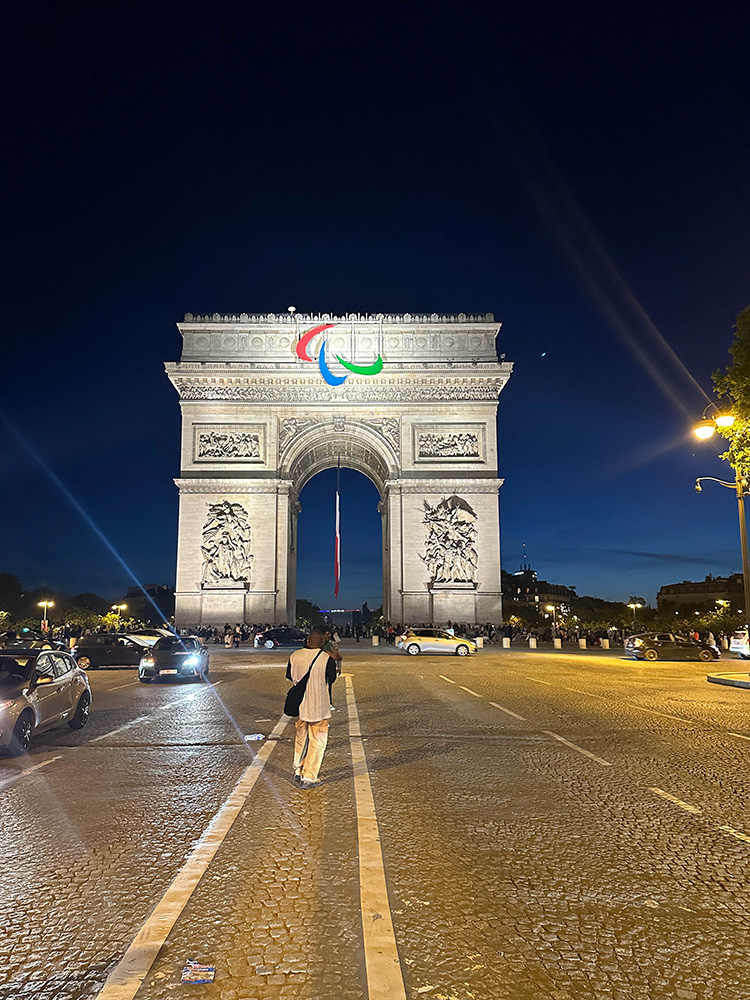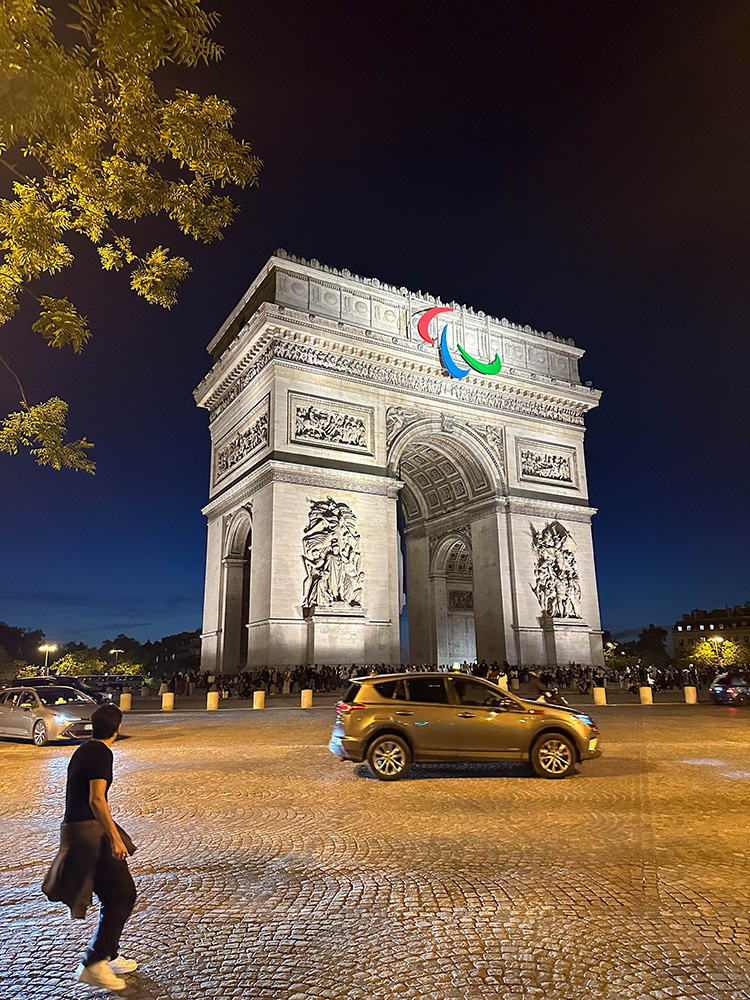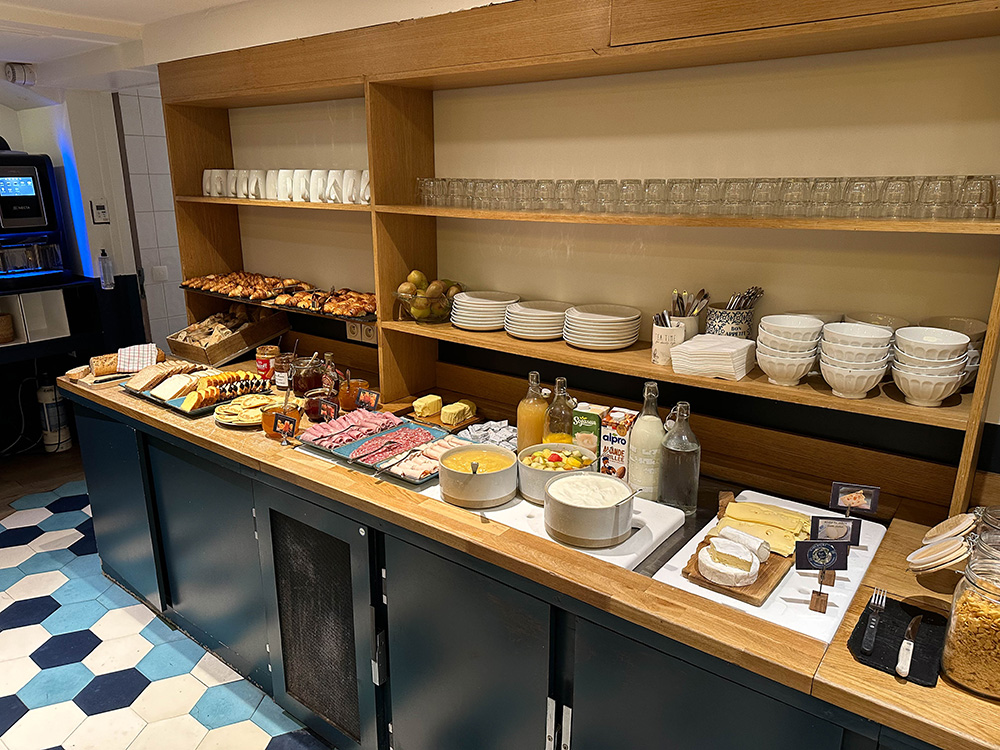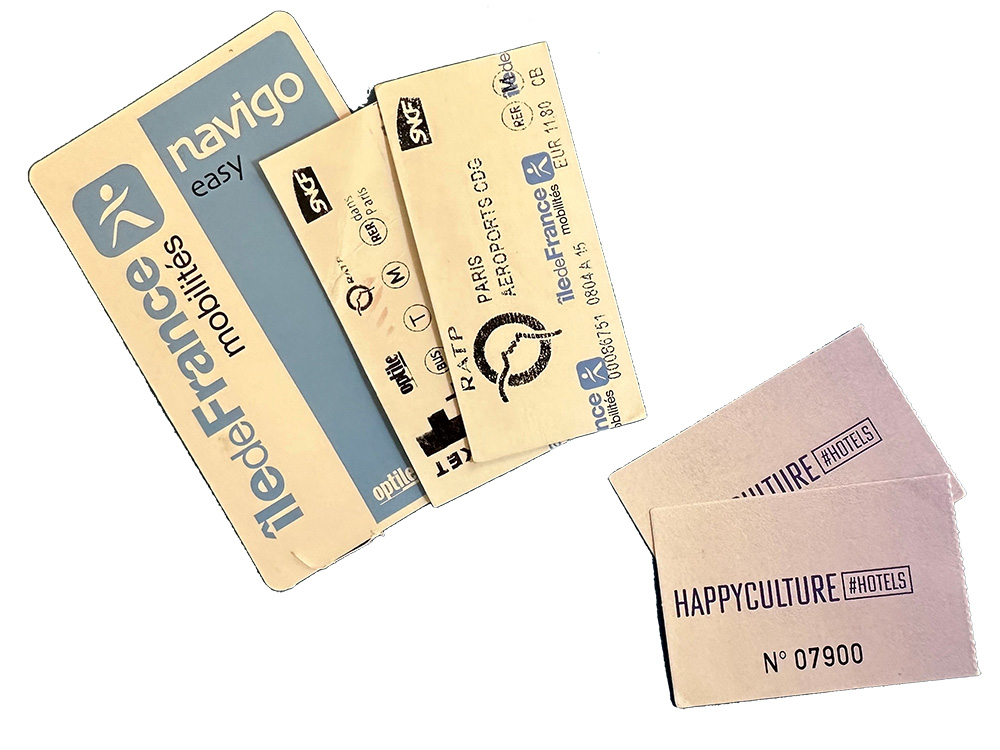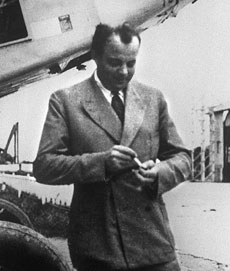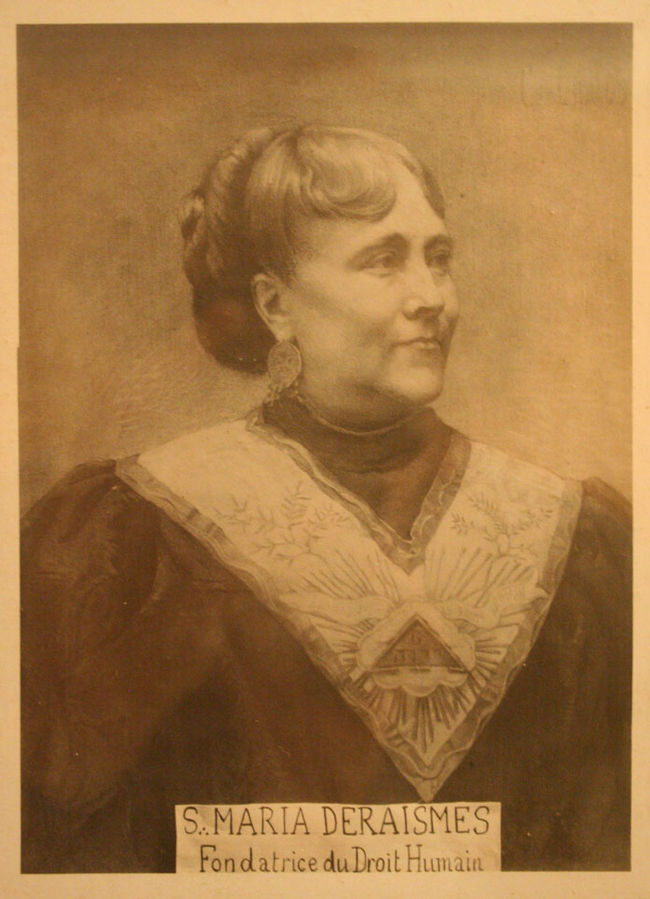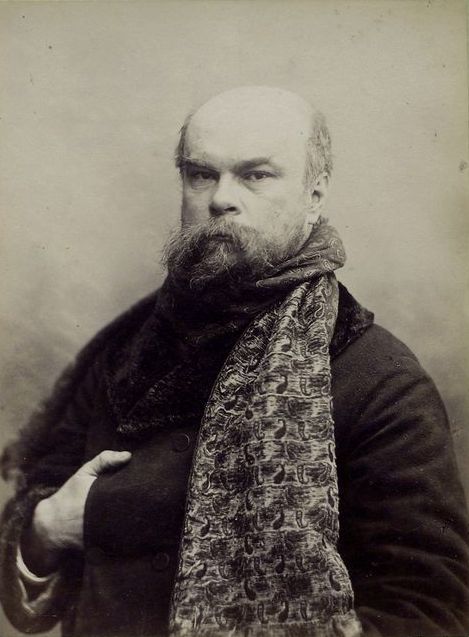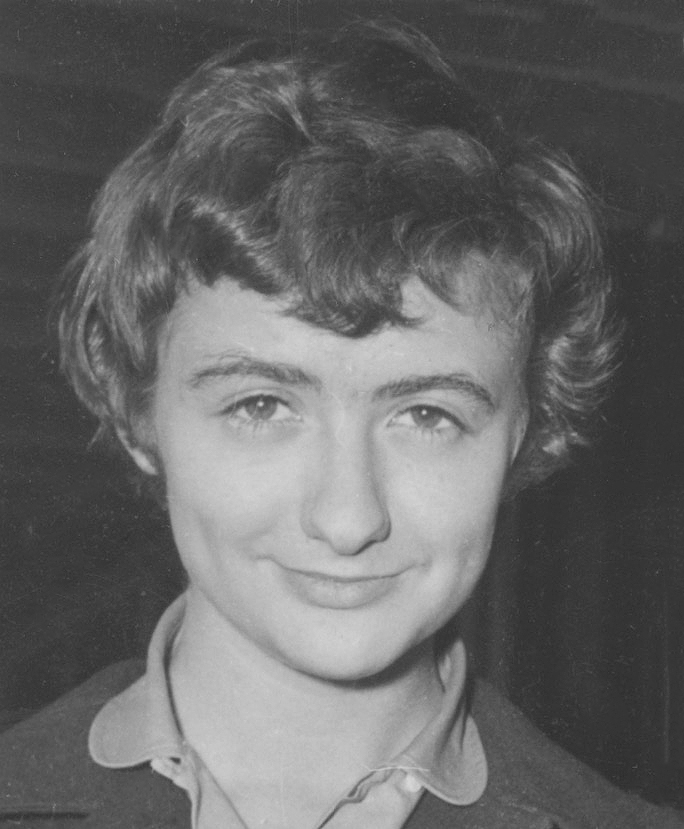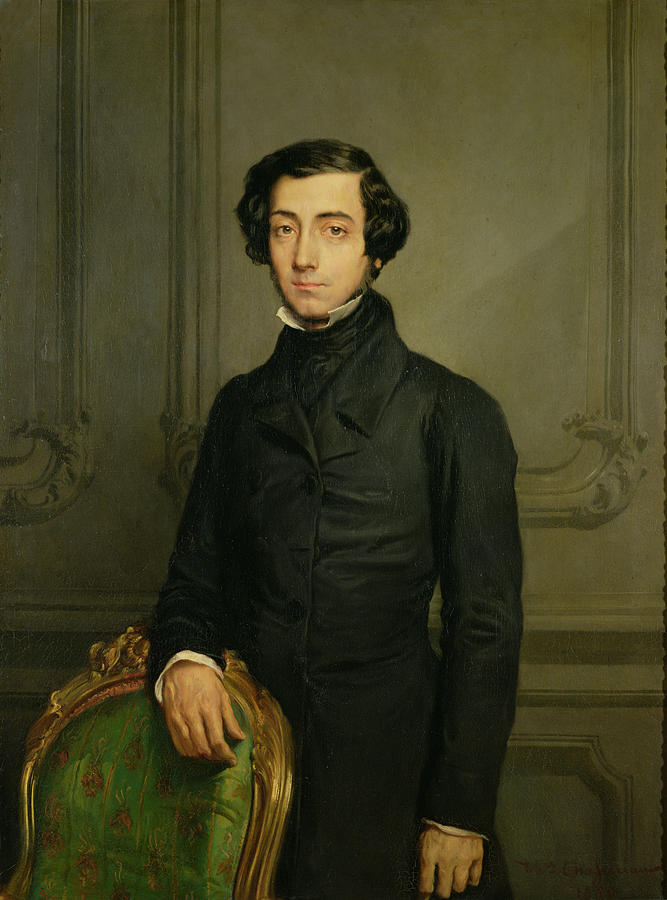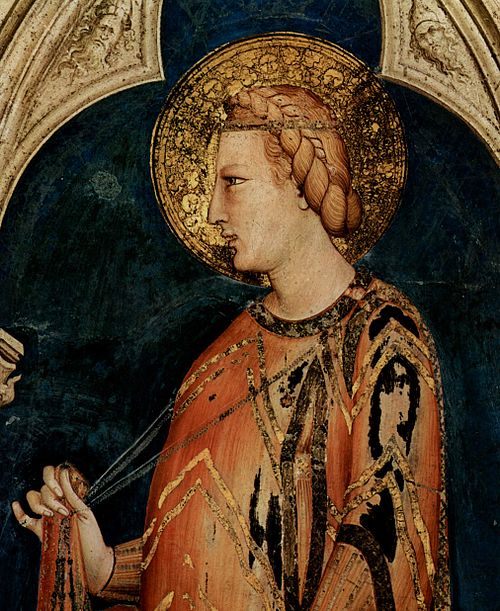Pour les uns, qui voyagent,
les étoiles sont des guides.
For some, who travel,
the stars are guides.
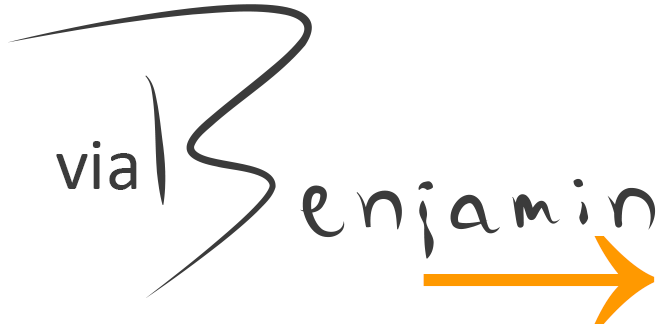
I took up the road again, at the start of my last failure, retracing my steps to go beyond.

|
A hundredth of a second here, a hundredth of a second there – even if you put them end to end,
they still only add up to one, two, perhaps three seconds, snatched from eternity.

|
|
- Doisneau |
~ 1 ~
I remember Jim Morrison is buried at the Père Lachaise cemetery,
and Martin Guitars are made in Nazareth, Pennsylvania.
Years ago I lived in a tiny corner apartment on the Rue Maria Deraismes, across from the Square des Épinettes. A kitchenette, a pull out bed, and
a shower barely bigger then my self. My girlfriend at the time came to visit. One look and she said, incredulously and slightly scornfully,
"you live here?" It mystified me. I lived in a Paris. What else mattered?
Maria Deraismes was a French author, prominant suffragette, and Freemason.
The stories about La Diva. They're true. Even the cast list read something like a Moulin Rouge rough draft.
A Senegalese courtesan, a nubile platinum blonde, Harold Zidler's body double, a Columbian prostitute, and a gypsy trapeze artist.
~ Sainte-Elisabeth de Hongrie de Paris ~
"She said she didn't love him, and he said it didn't matter, and the poverty of their words brought tears to their eyes."
- Françoise Sagan

|
If peoples whose social state is democratic could remain free only when they inhabit a wilderness, one would have to despair of the
future lot of the human species; for men are advancing rapidly toward democracy and the wildernesses are filling up.
If it were true that laws and mores were insufficient to maintain democratic institutions, what other refuge would remain for nations
if not the despotism of one alone?
I know that in our day there are many honest people whom this future scarcely frightens, and whom, fatigued by freedom, would like to
rest at last far from its storms. 
|
|
|
- de Tocqueville |
|
'Le piano que baise...'
Son joyeux, importun, d'un clavecin sonore.
(Pétrus Borel)
Le piano que baise une main frêle
Luit dans le soir rose et gris vaguement,
Tandis qu'avec un très léger bruit d'aile
Un air bien vieux, bien faible et bien charmant
Rôde discret, épeuré quasiment,
Par le boudoir longtemps parfumé d'Elle.
Qu'est-ce que c'est que ce berceau soudain
Qui lentement dorlote mon pauvre être?
Que voudrais-tu de moi, doux Chant badin?
Qu'as-tu voulu, fin refrain incertain
Qui vas tantôt mourir vers la fenêtre
Ouverte un peu sur le petit jardin?
'The piano kissed...'
Unbidden, happy sound of a melodious harpsichord.
(Pétrus Borel)
The piano kissed by a slender hand
Has vague sheens in the grey-pink light
Of evening, while on almost silent wings
A slight and very old and charming air
Roams discreetly as if scared
Of that inner sanctum full of Her.
Tell me, why suddenly this cradle
Rocking my poor bones to gentle rhythms?
Why this soft song playing games with me?
What did you want, you fine wisps
Of music dying at the window
Half-opened on the little garden?
'Ô triste, triste...'
Ô triste, triste était mon âme
A cause, à cause d'une femme.
Je ne me suis pas consolé
Bien que mon cœur s'en soit allé,
Bien que mon cœur, bien que mon âme
Eussent fui loin de cette femme.
Je ne me suis pas consolé,
Bien que mon cœur s'en soit allé.
'How sad I was...'
How sad I was, how sad,
Because of a woman, because.
The suffering endures
Although I've gone,
Heart, body and soul, A world away from her.
No consolation,
Though in my heart I've gone.
There are few things I enjoy more than an early breakfast in a Parisian hotel, ahead of the tourists
and travelers, the silence occasionally broken by some clattering in the kitchen, poring
over my notes and maps with strong coffee and French cheese.
